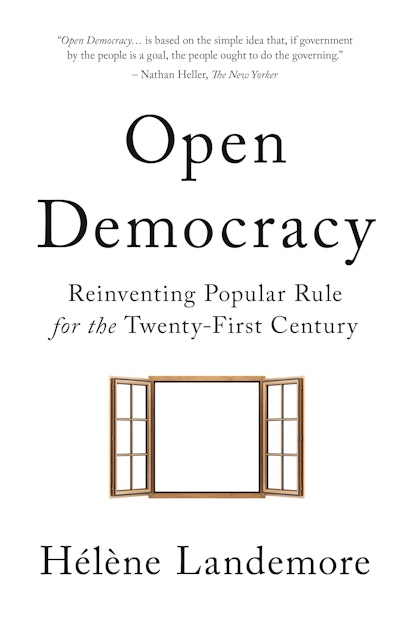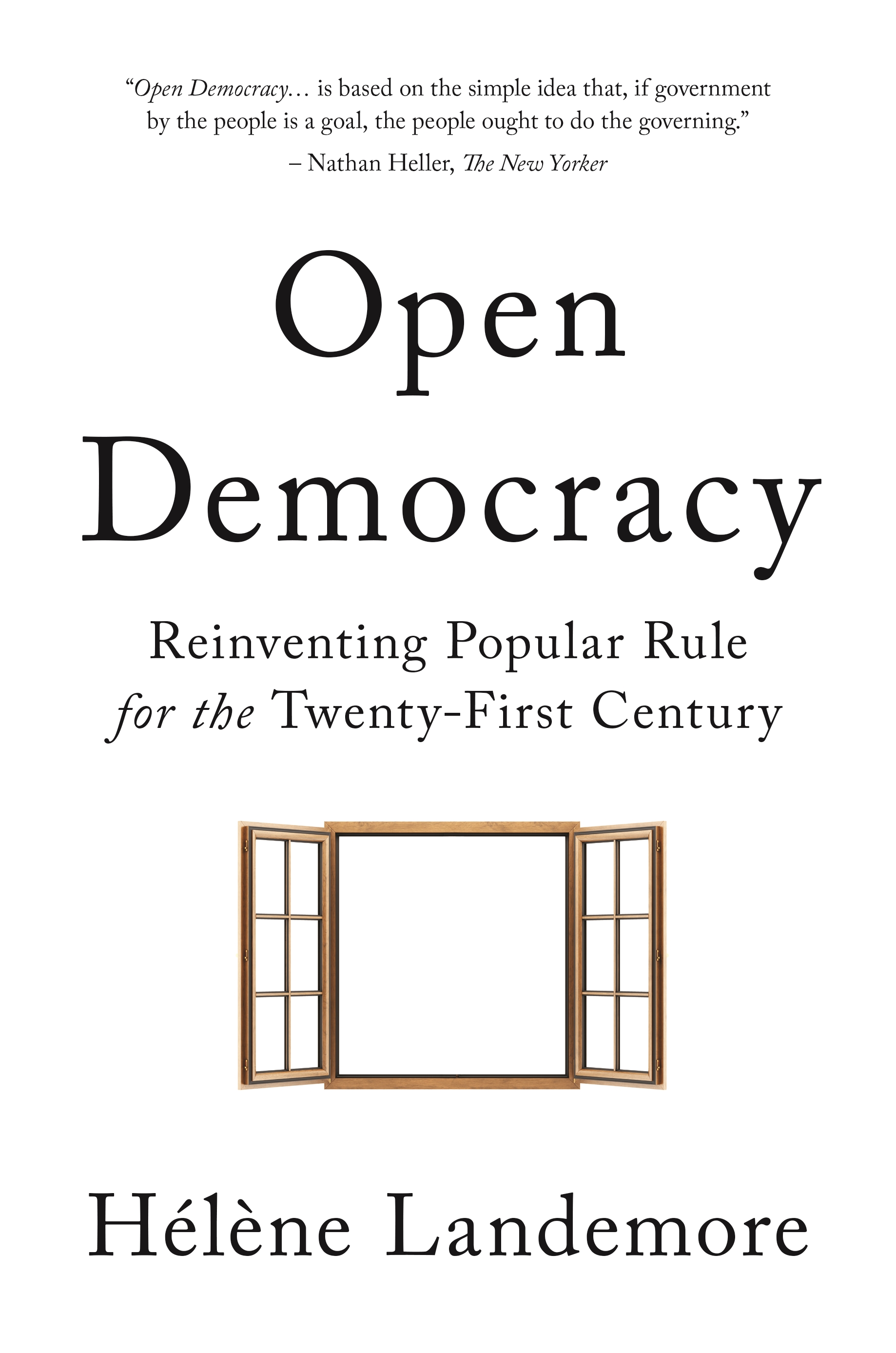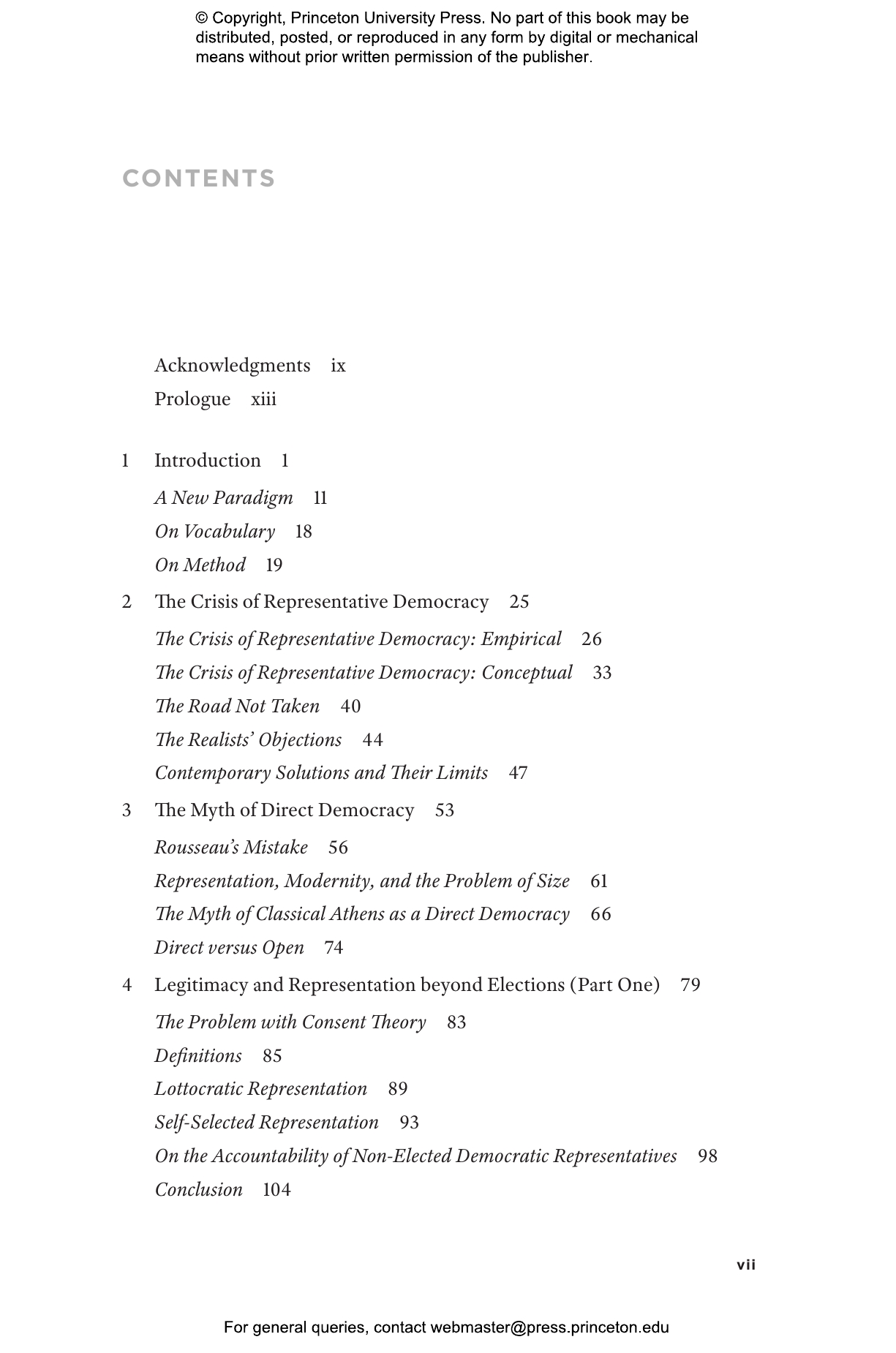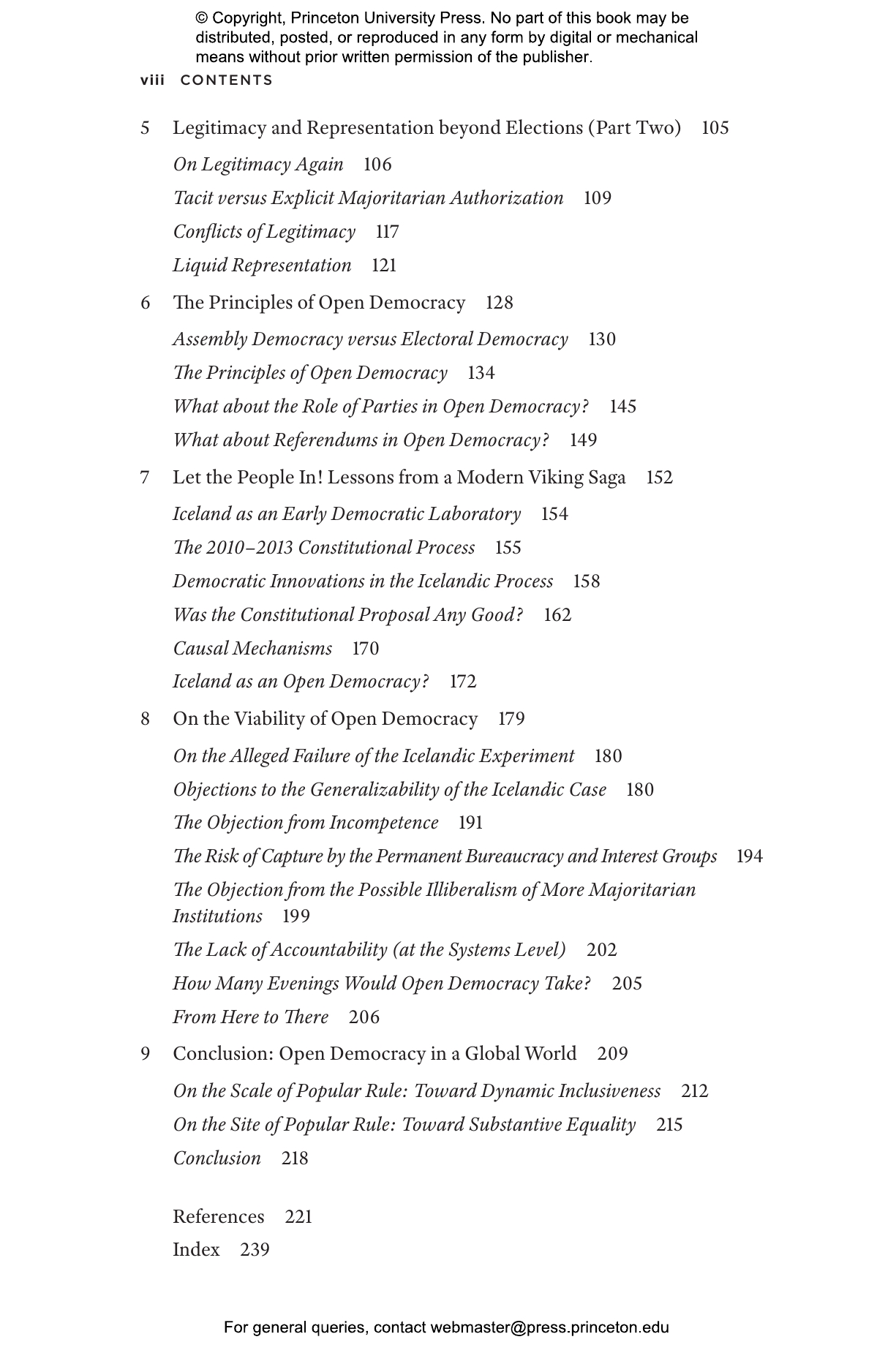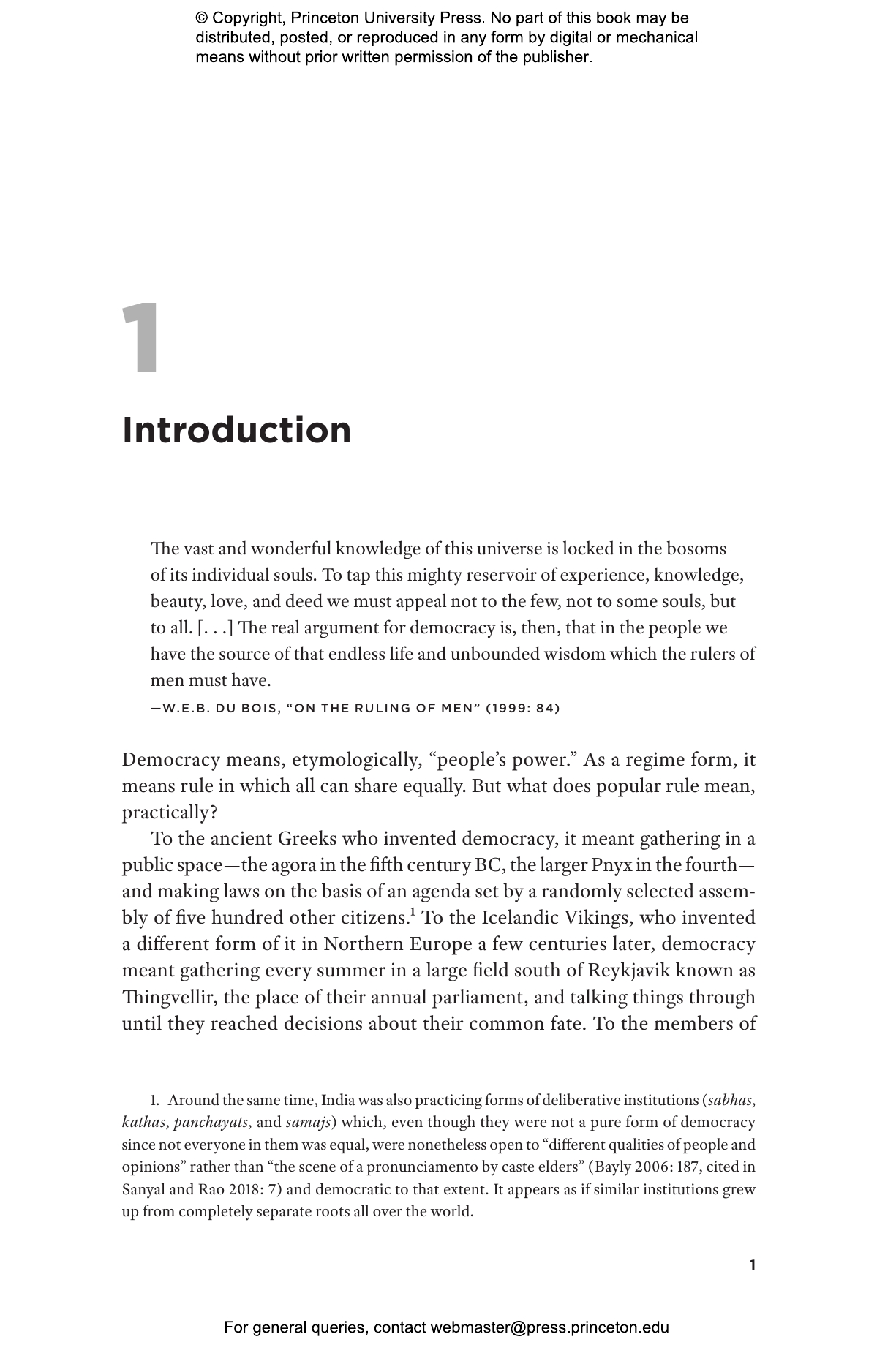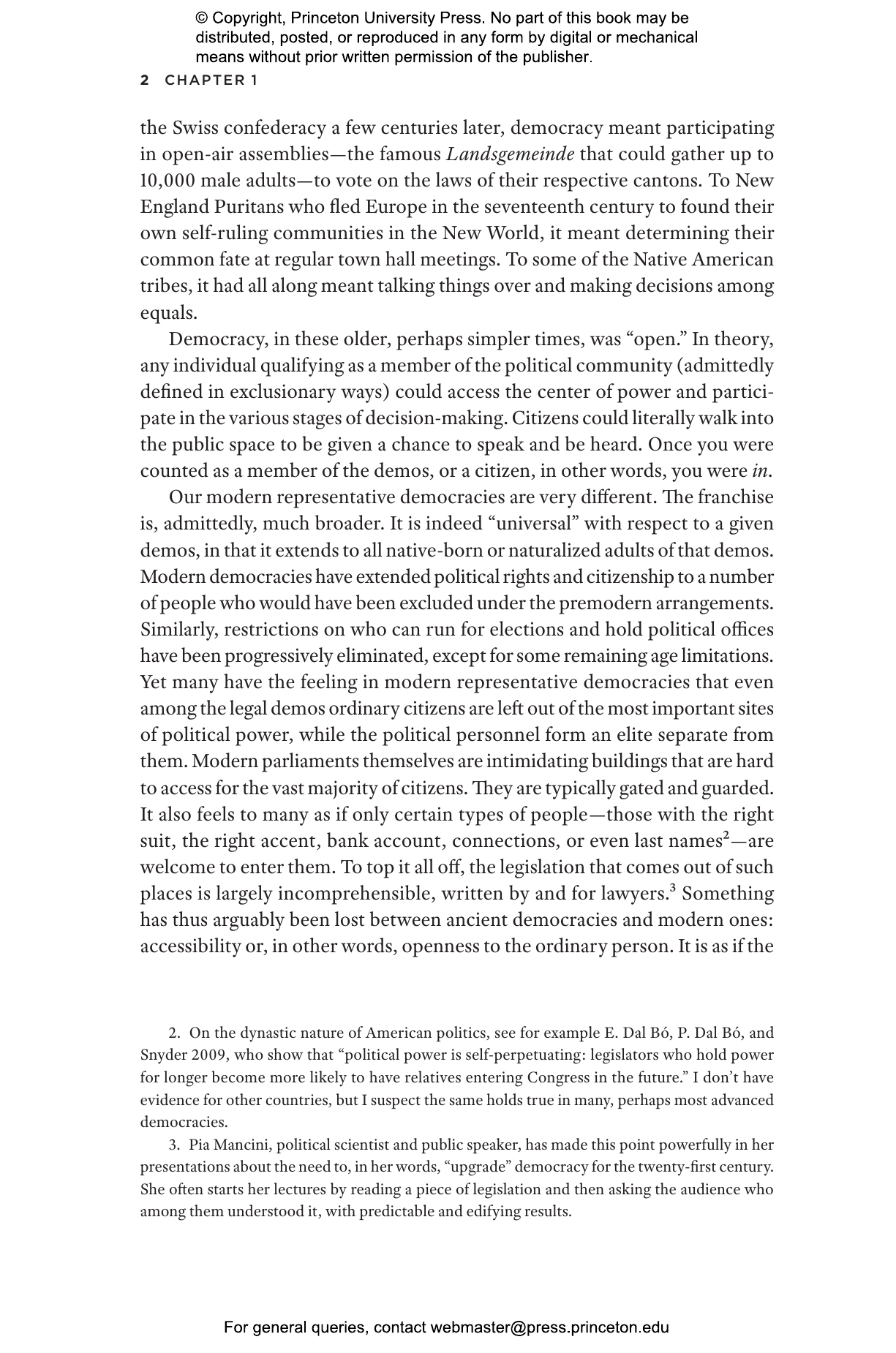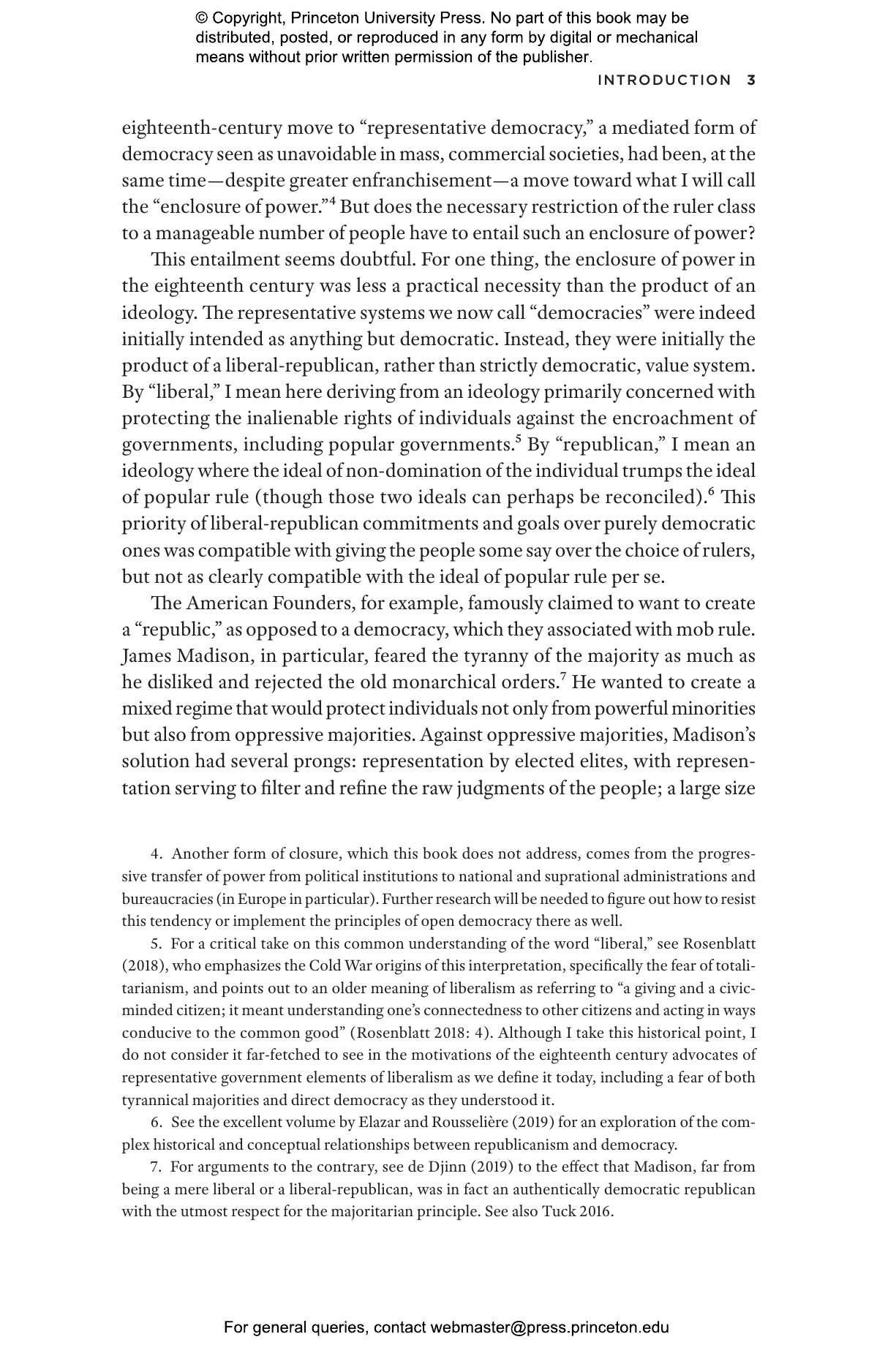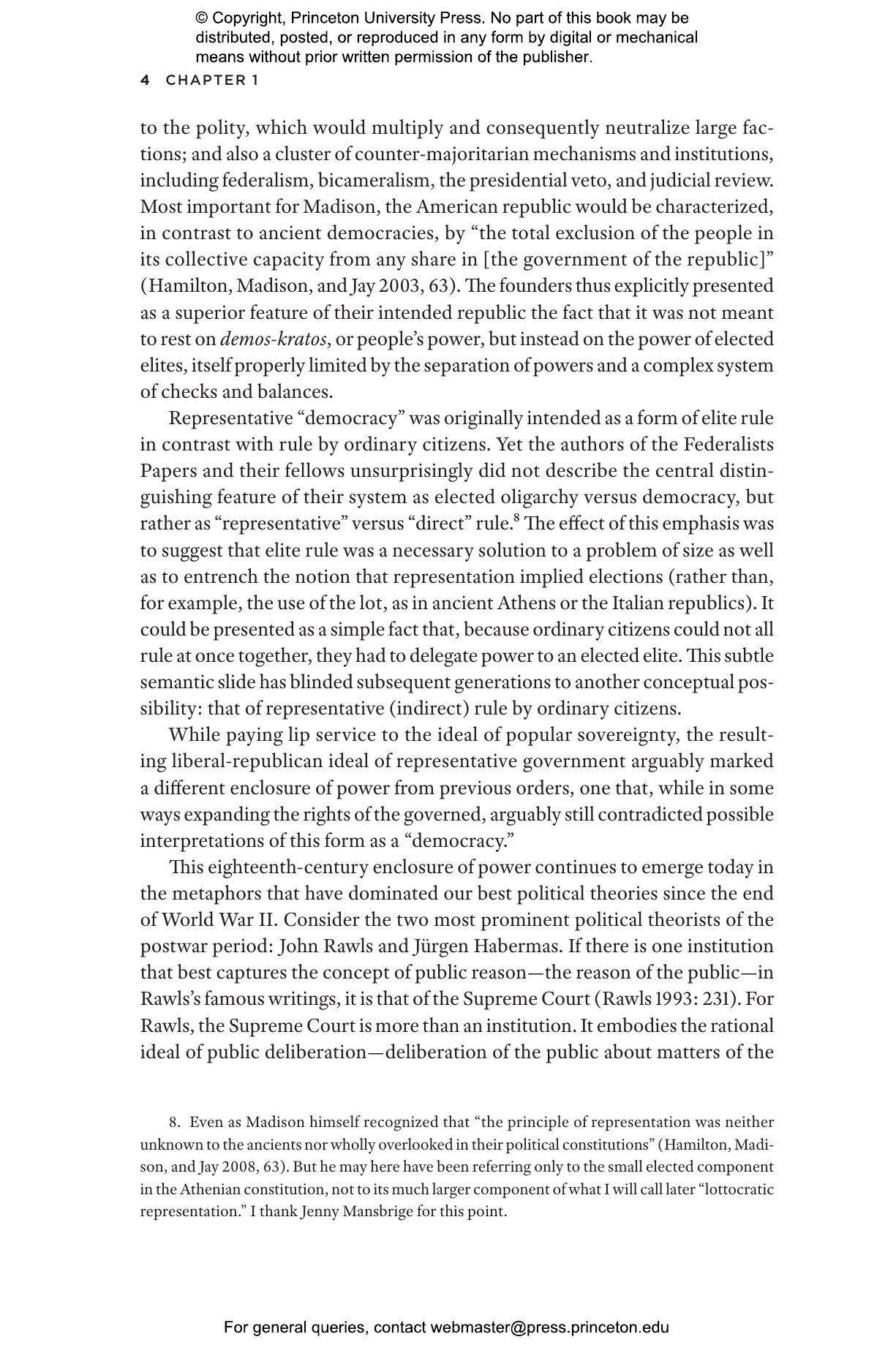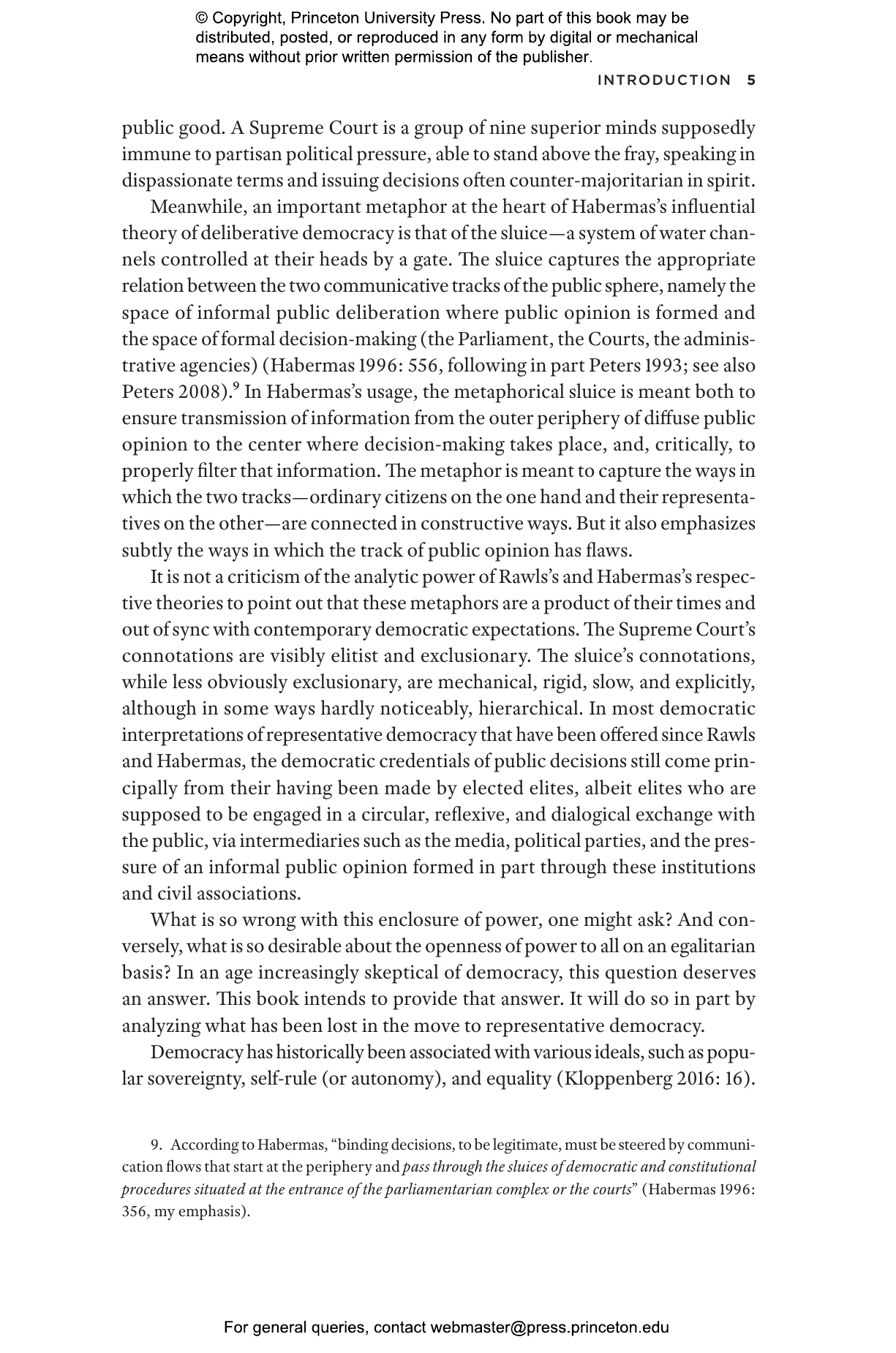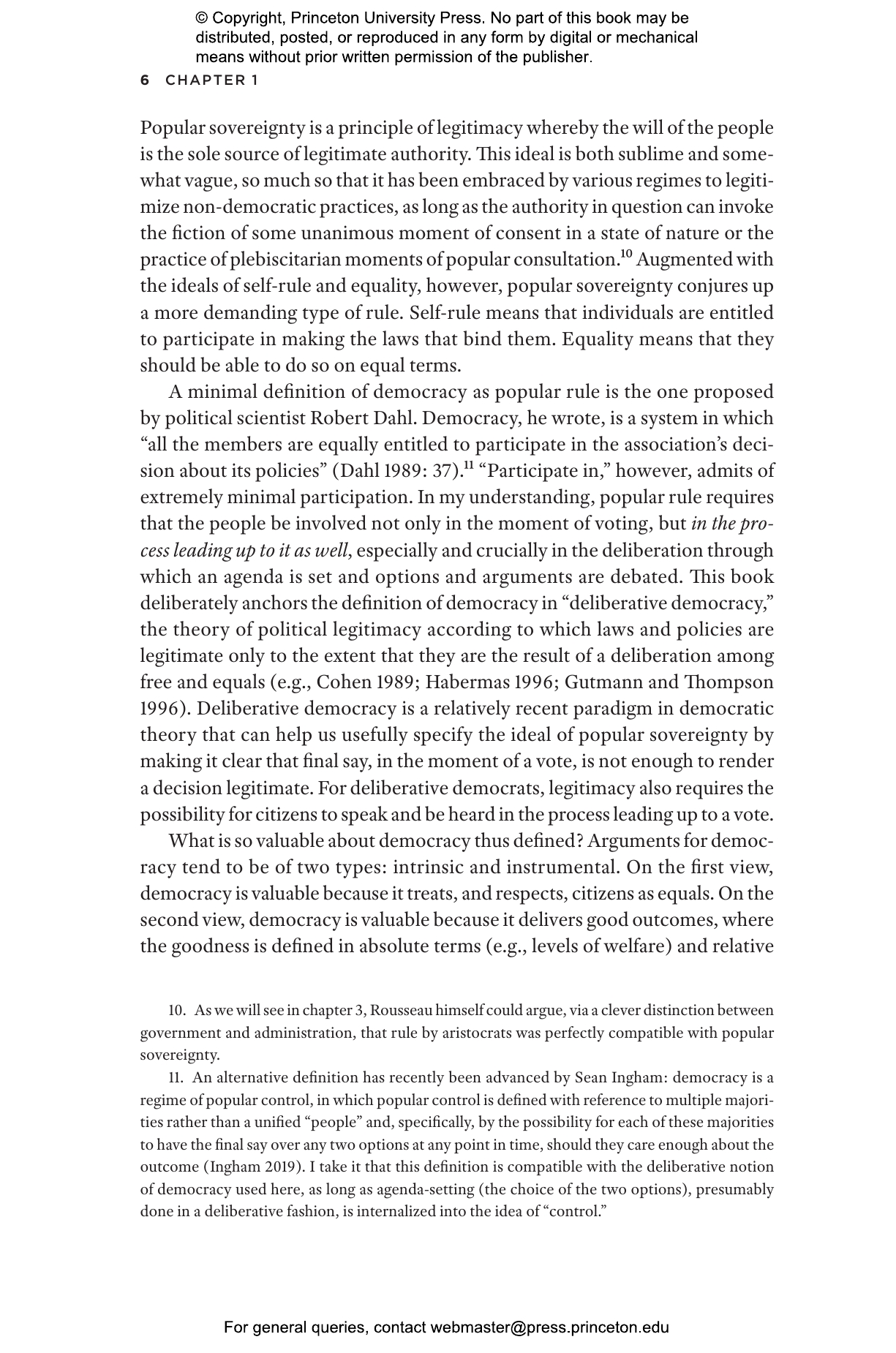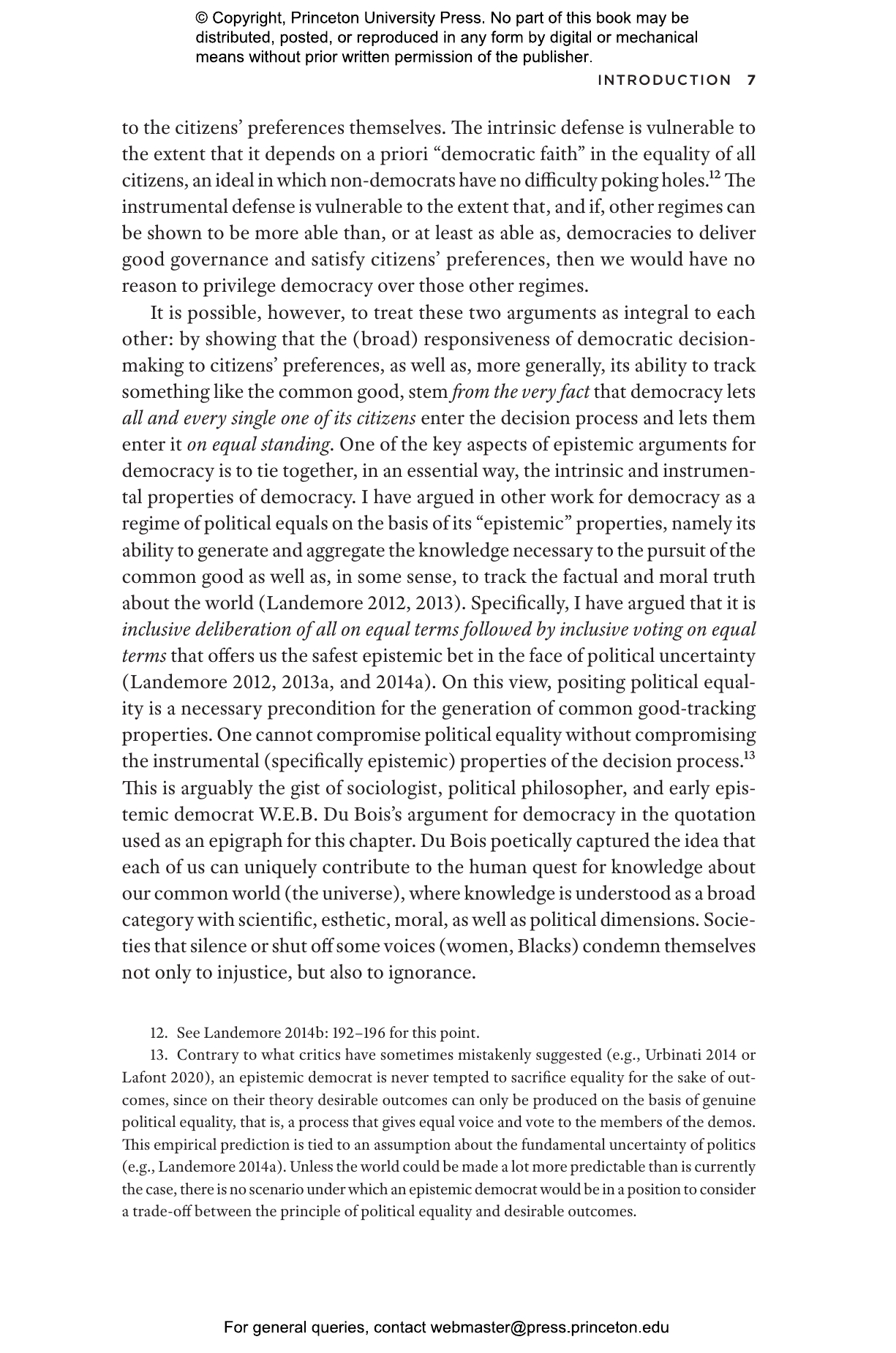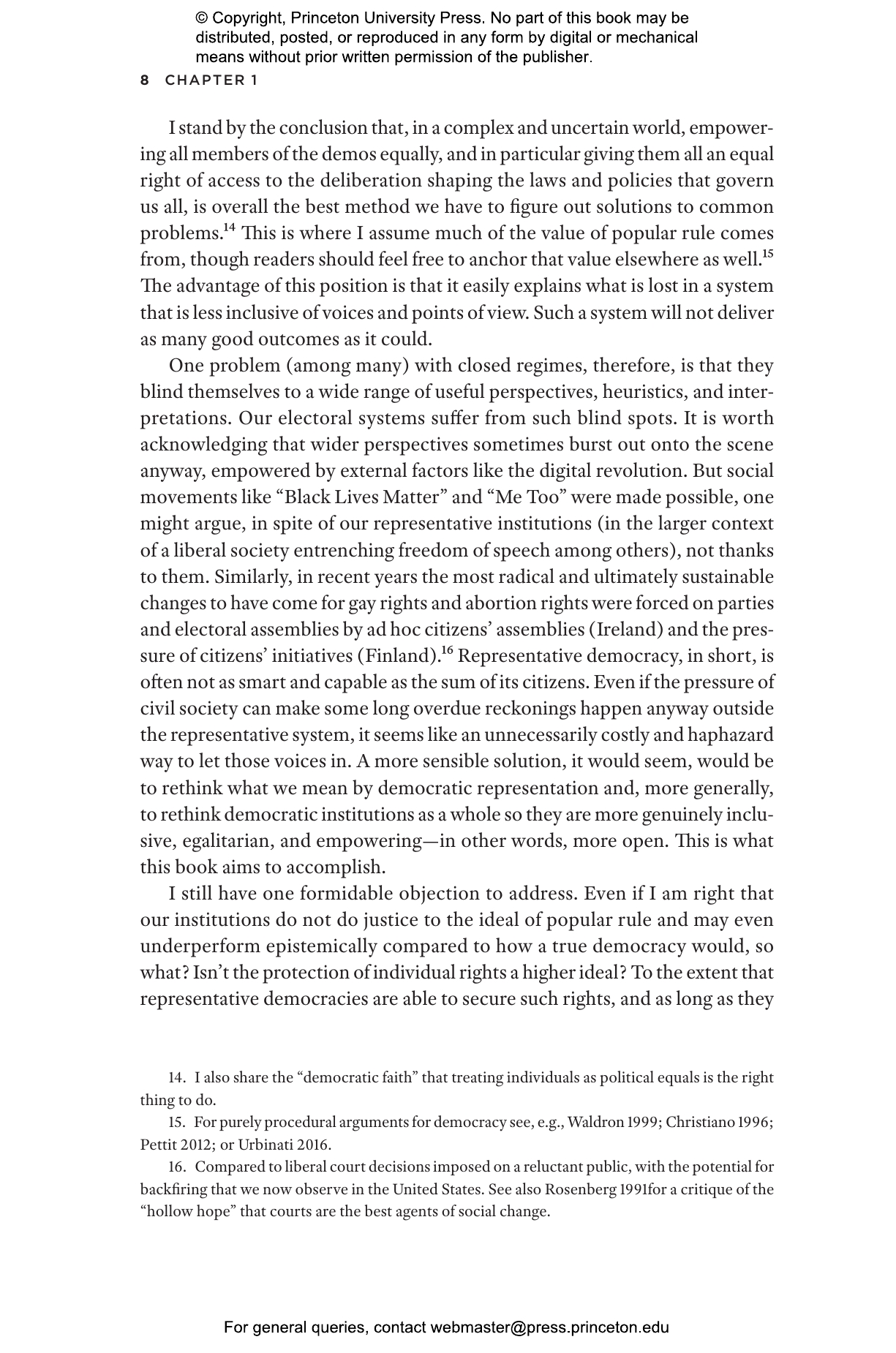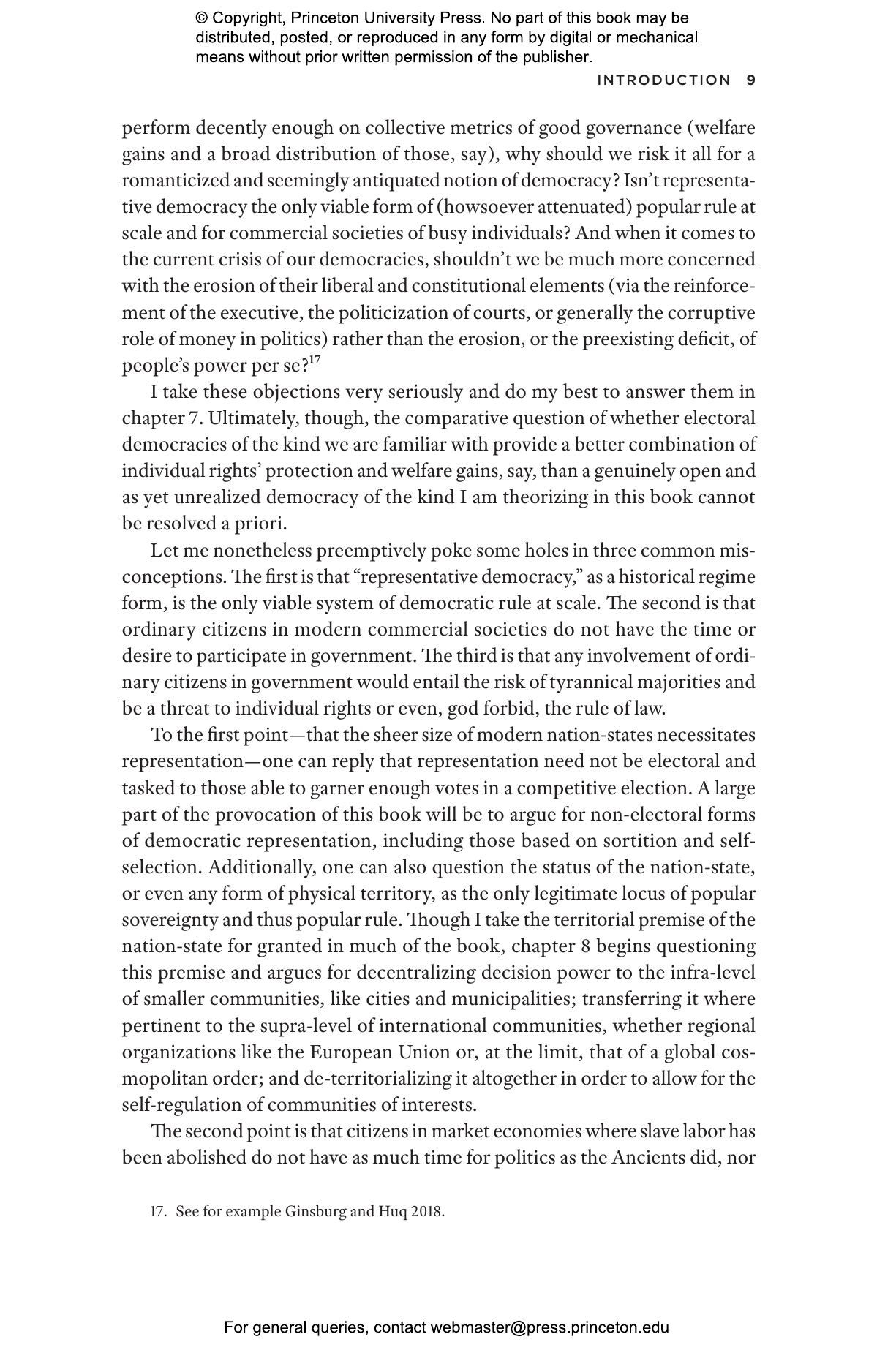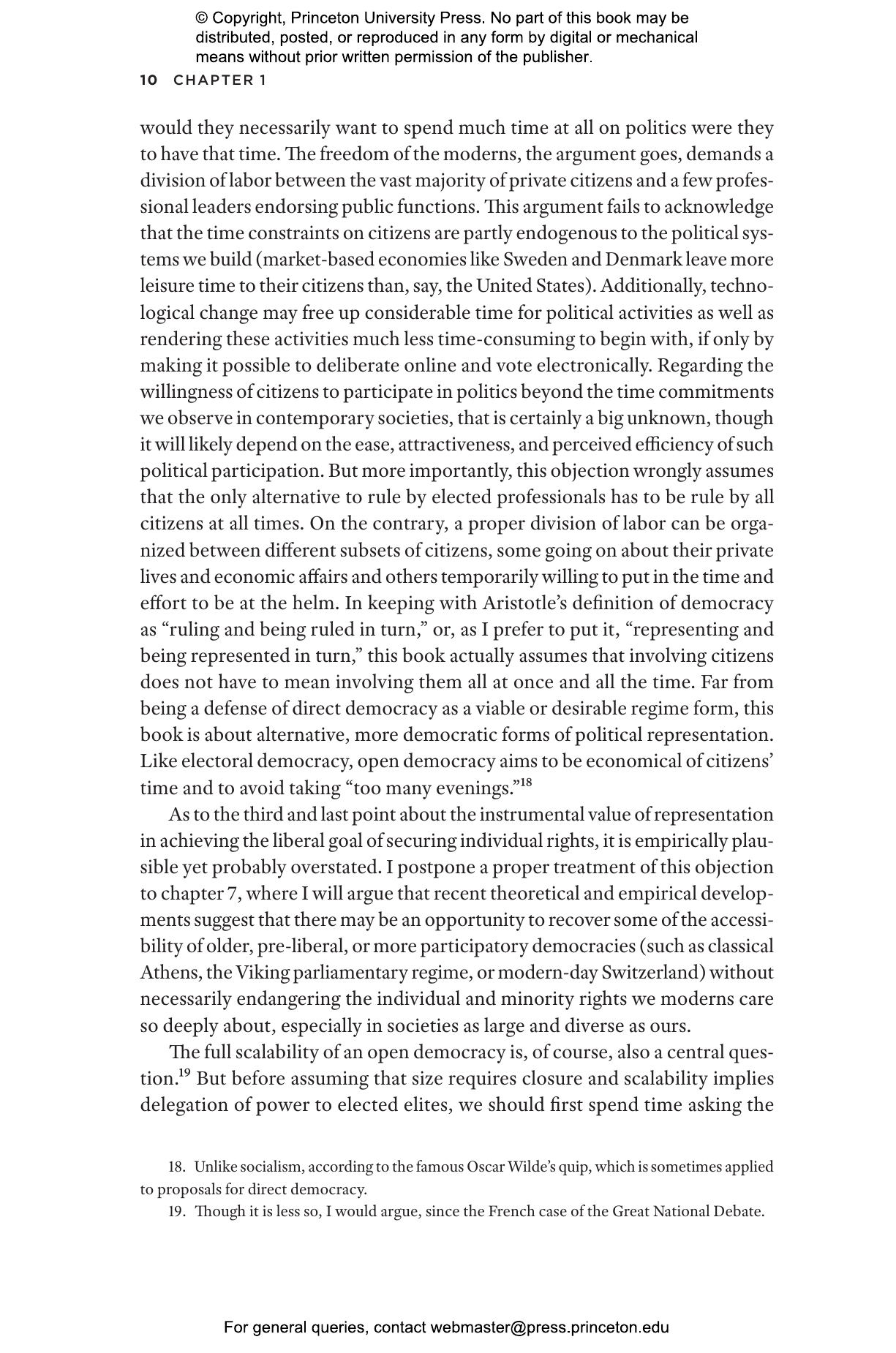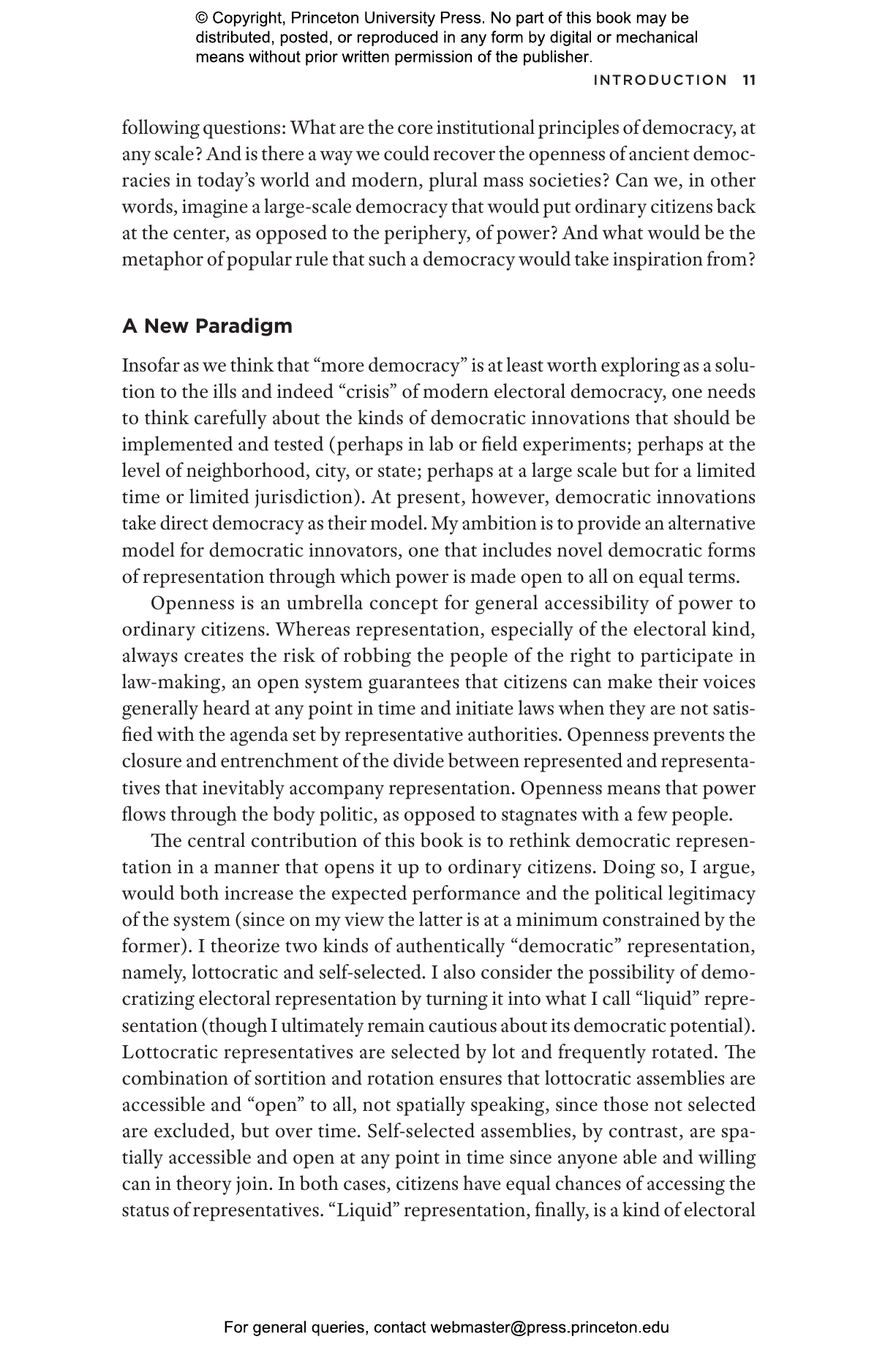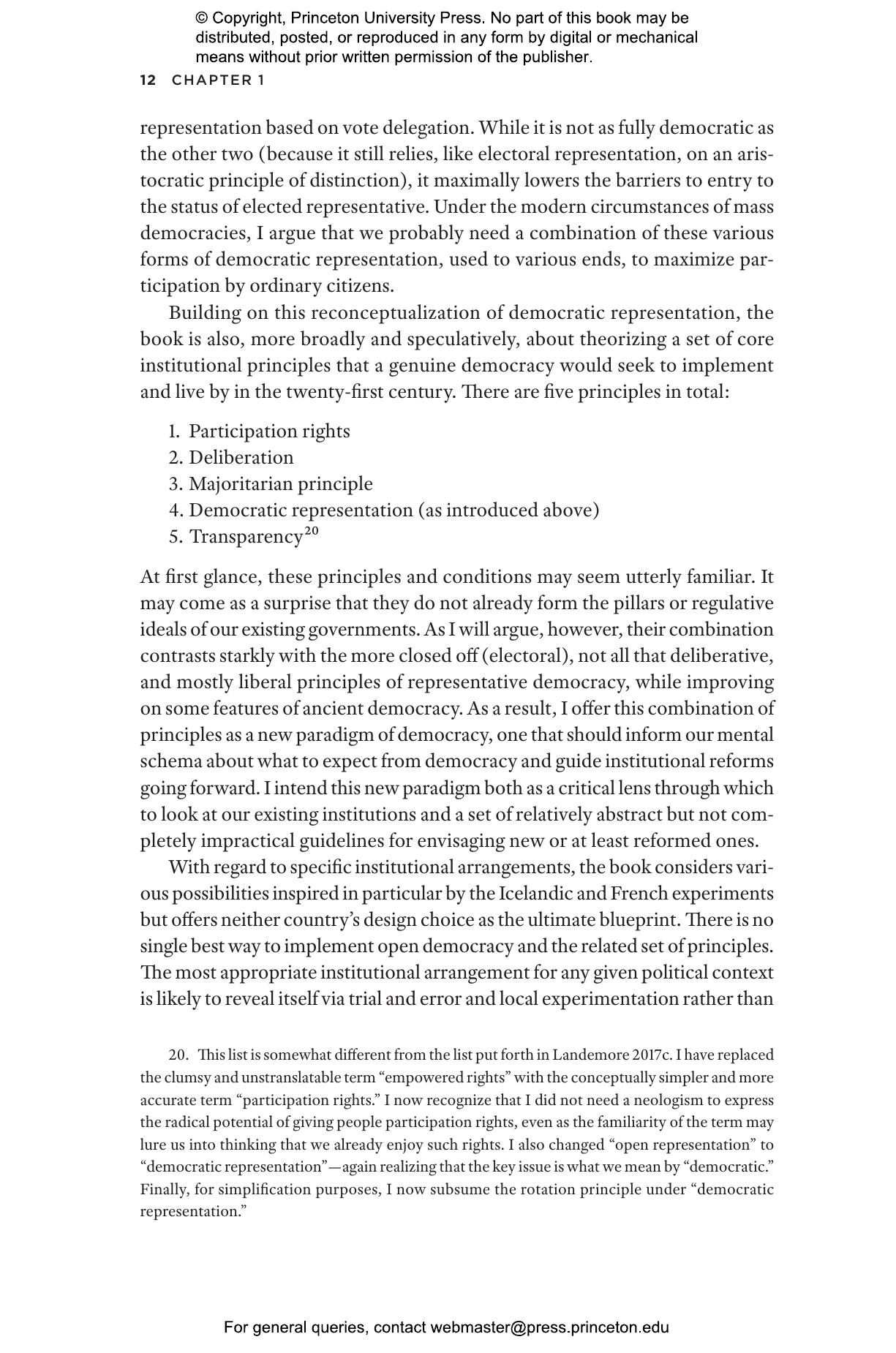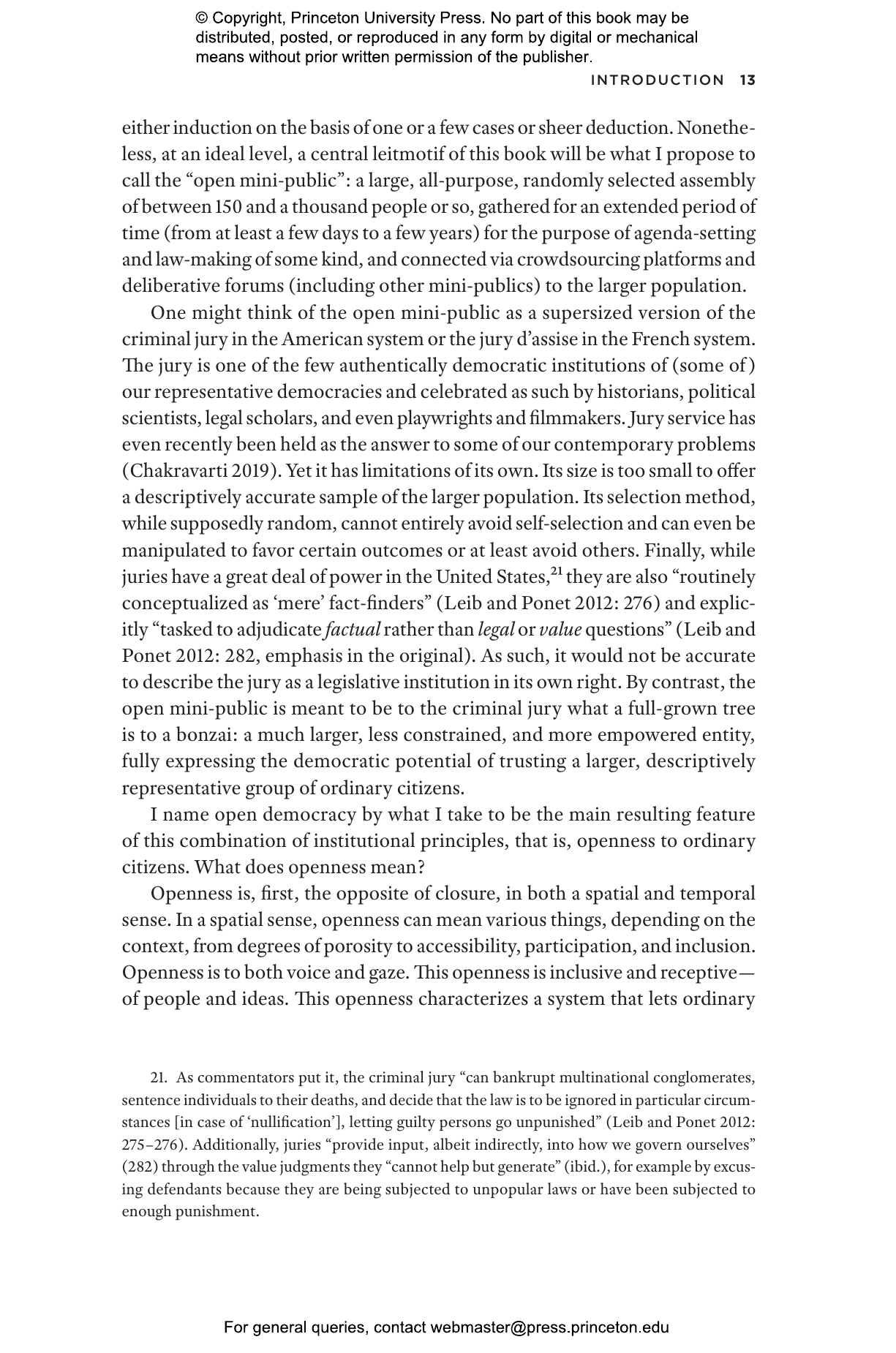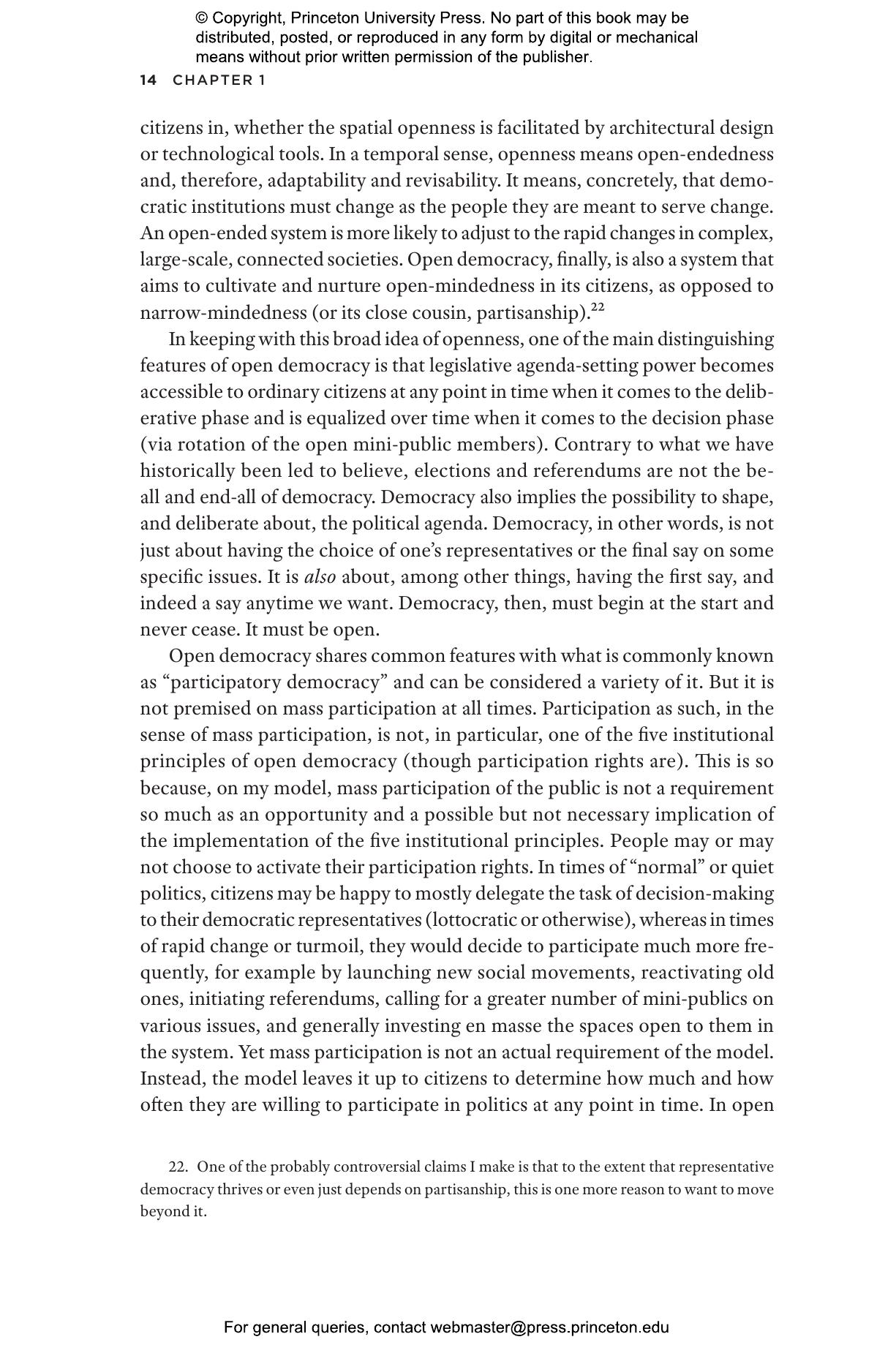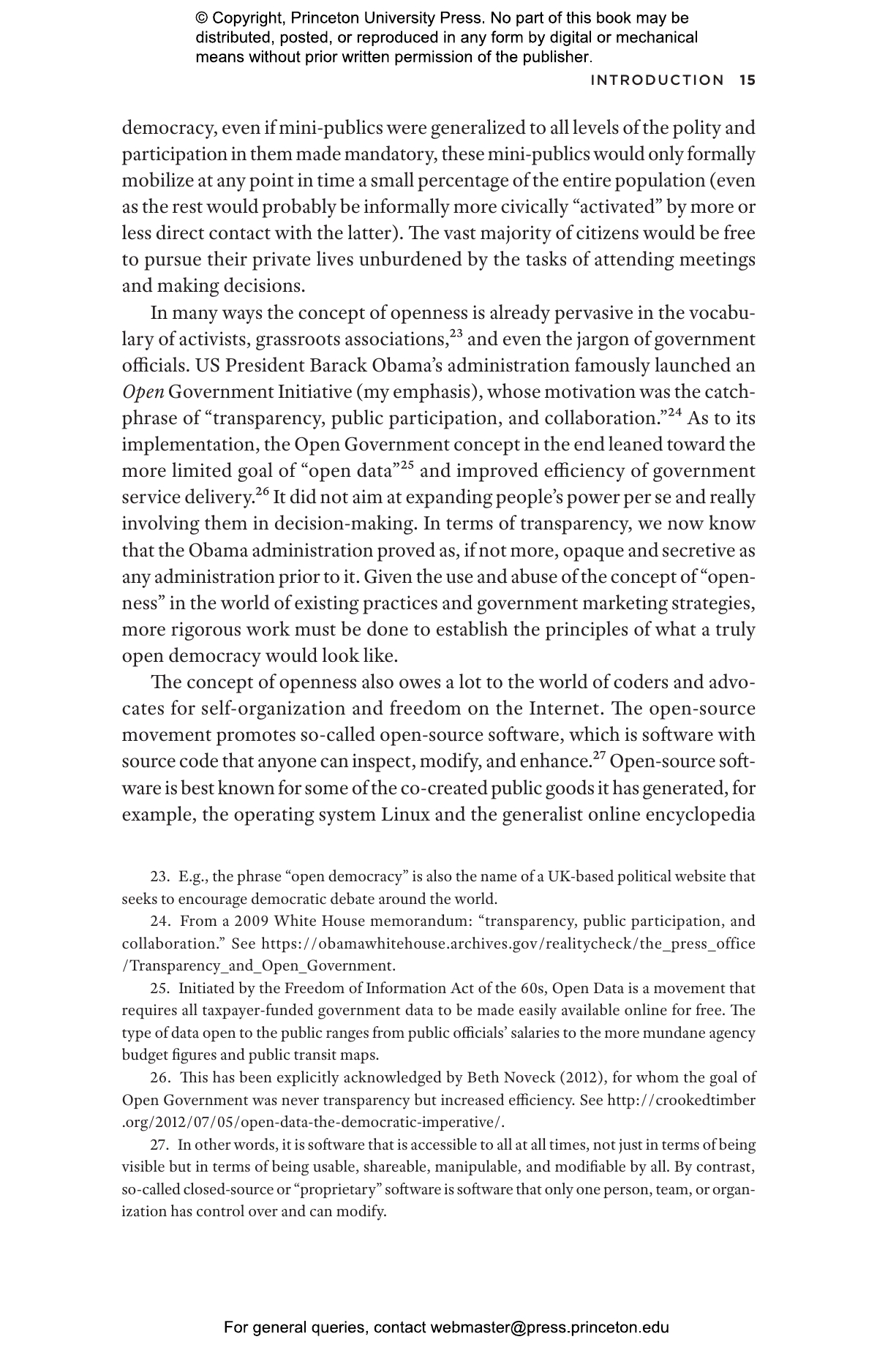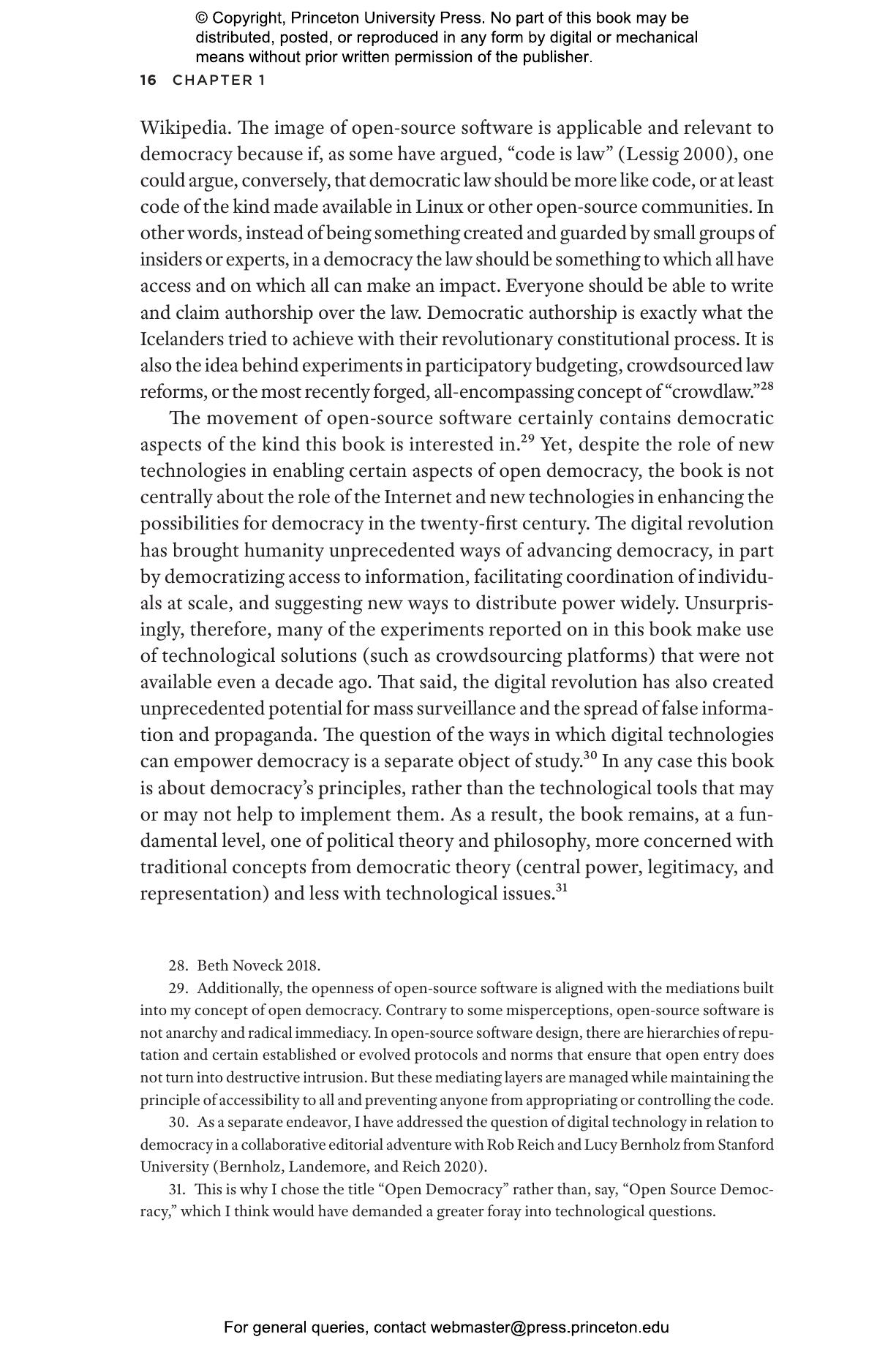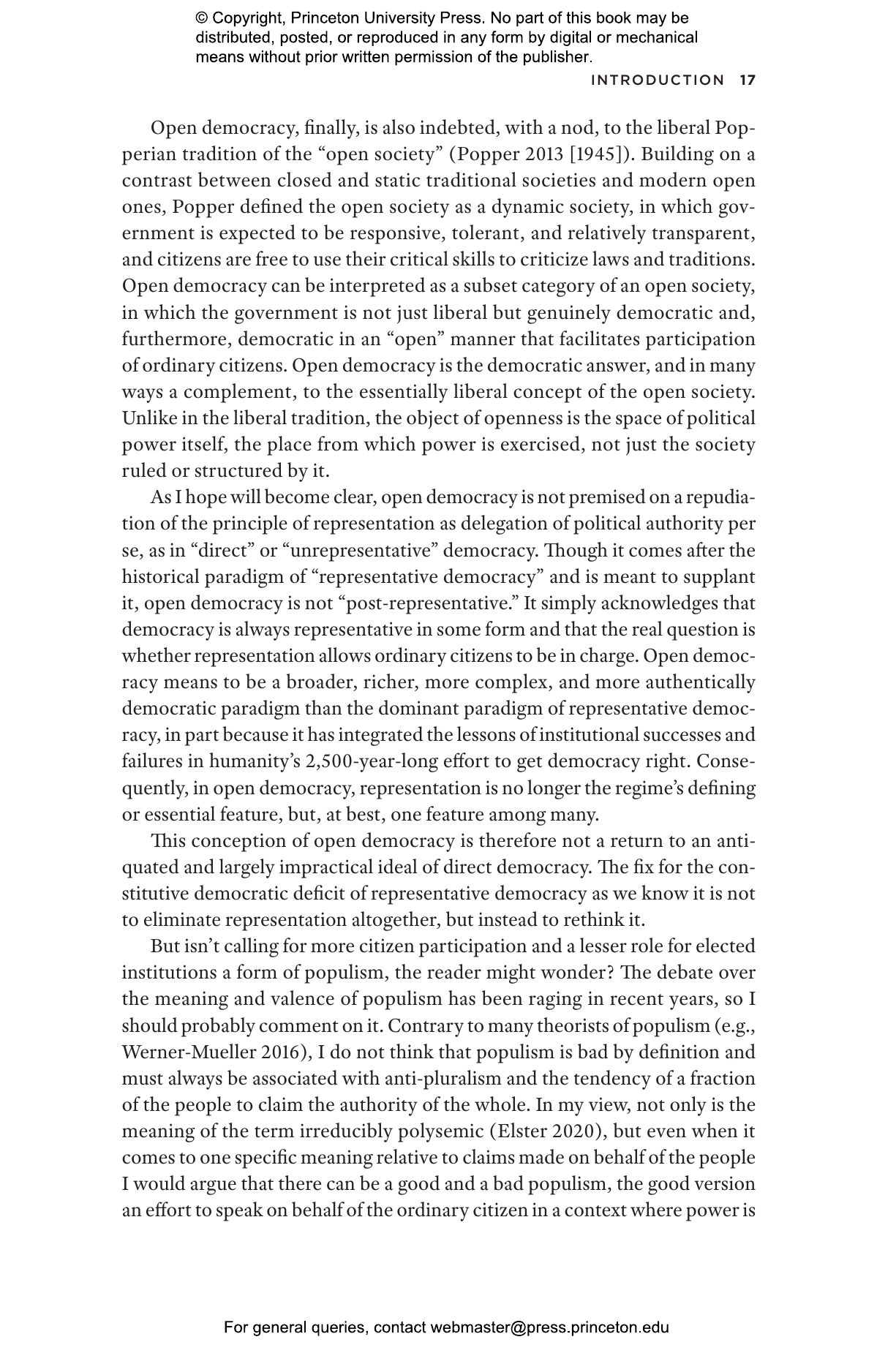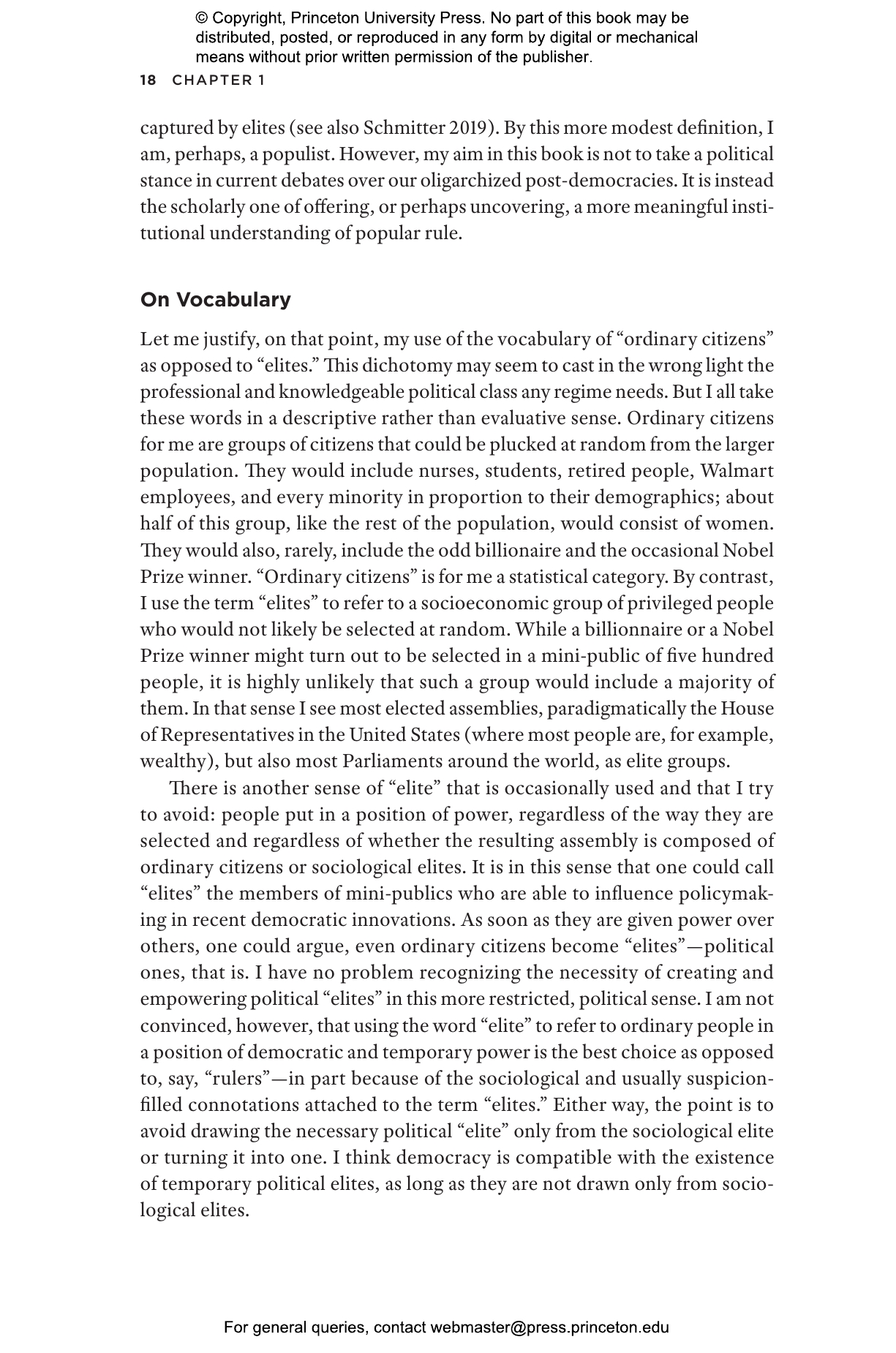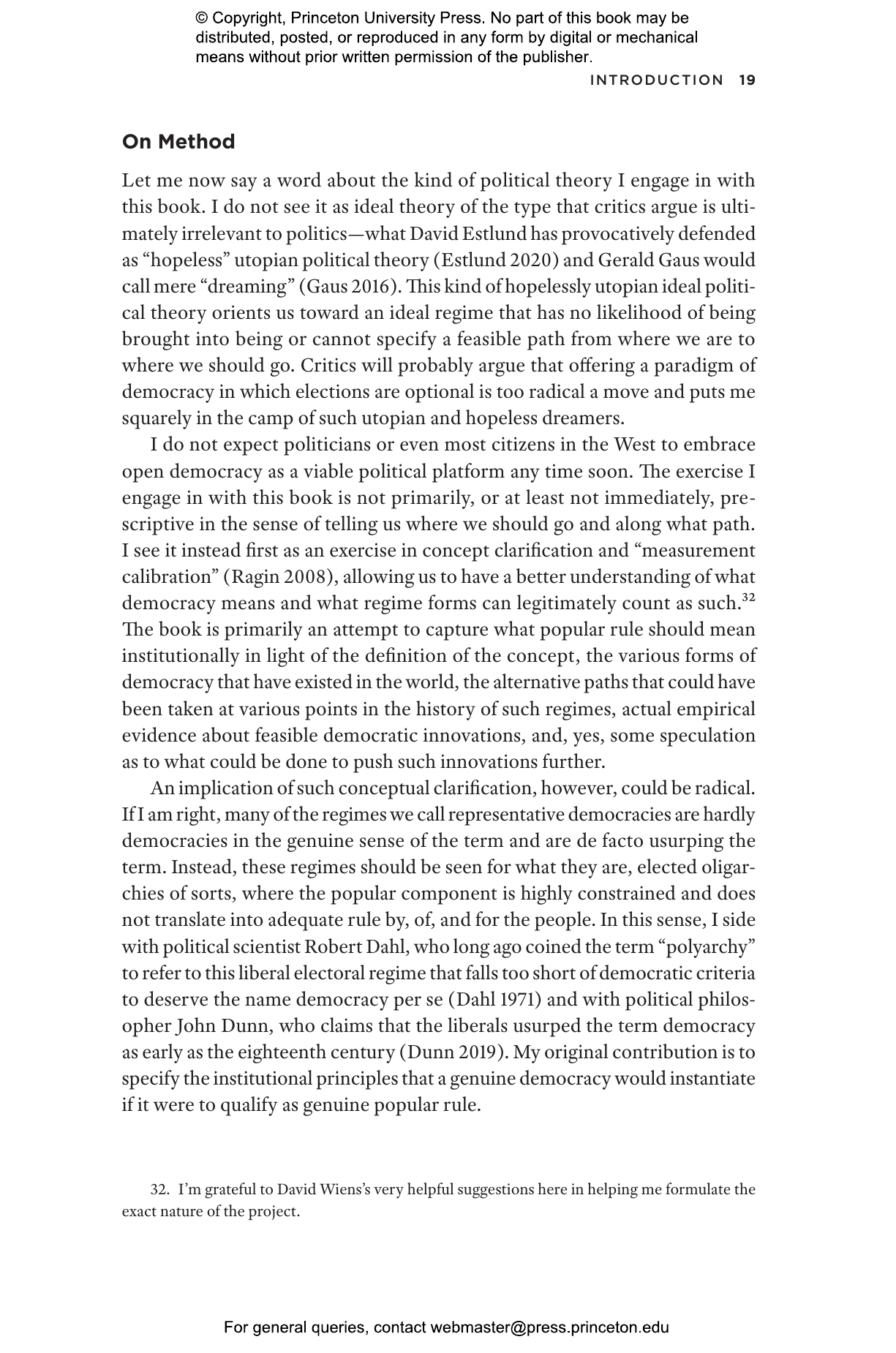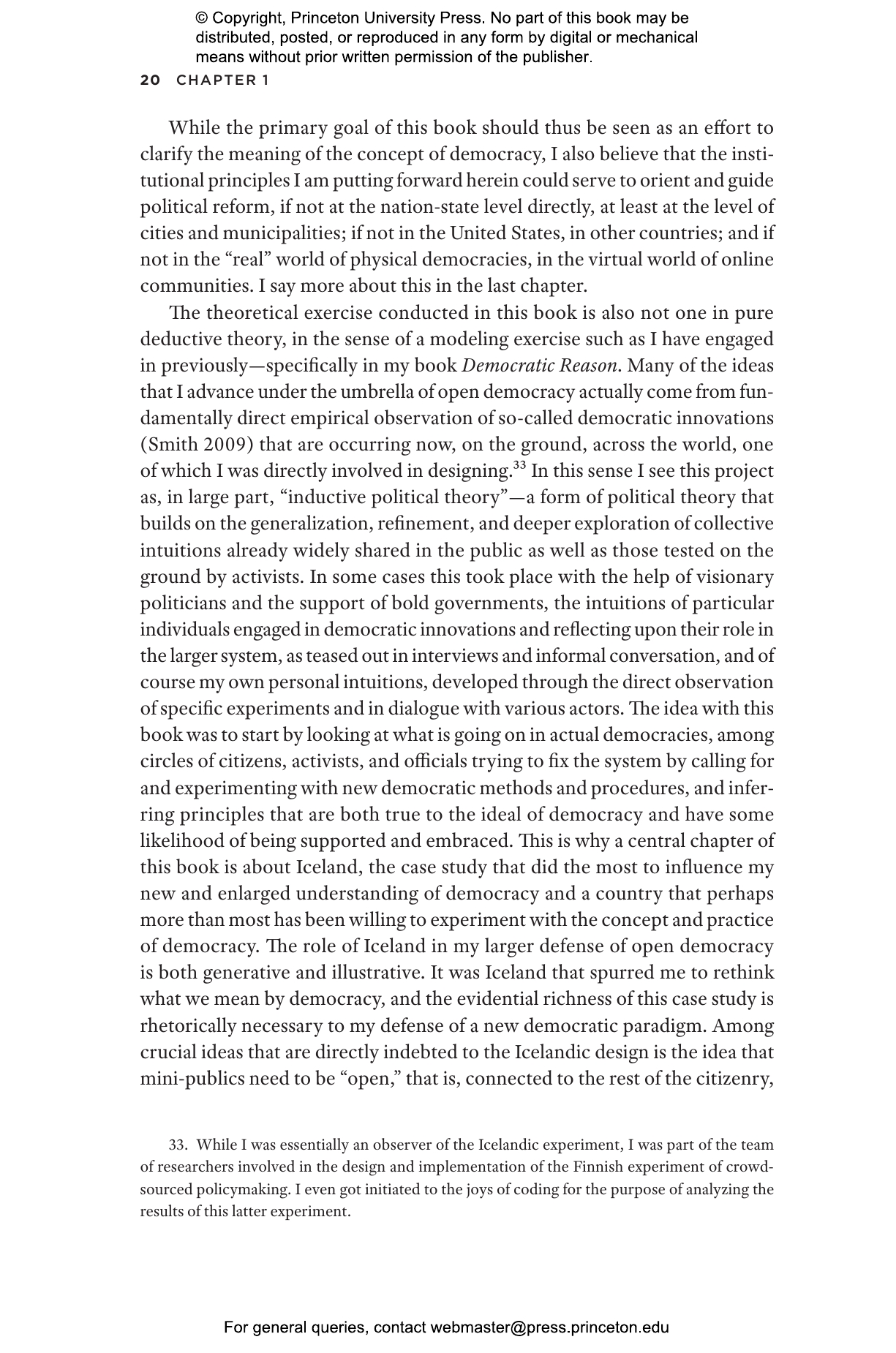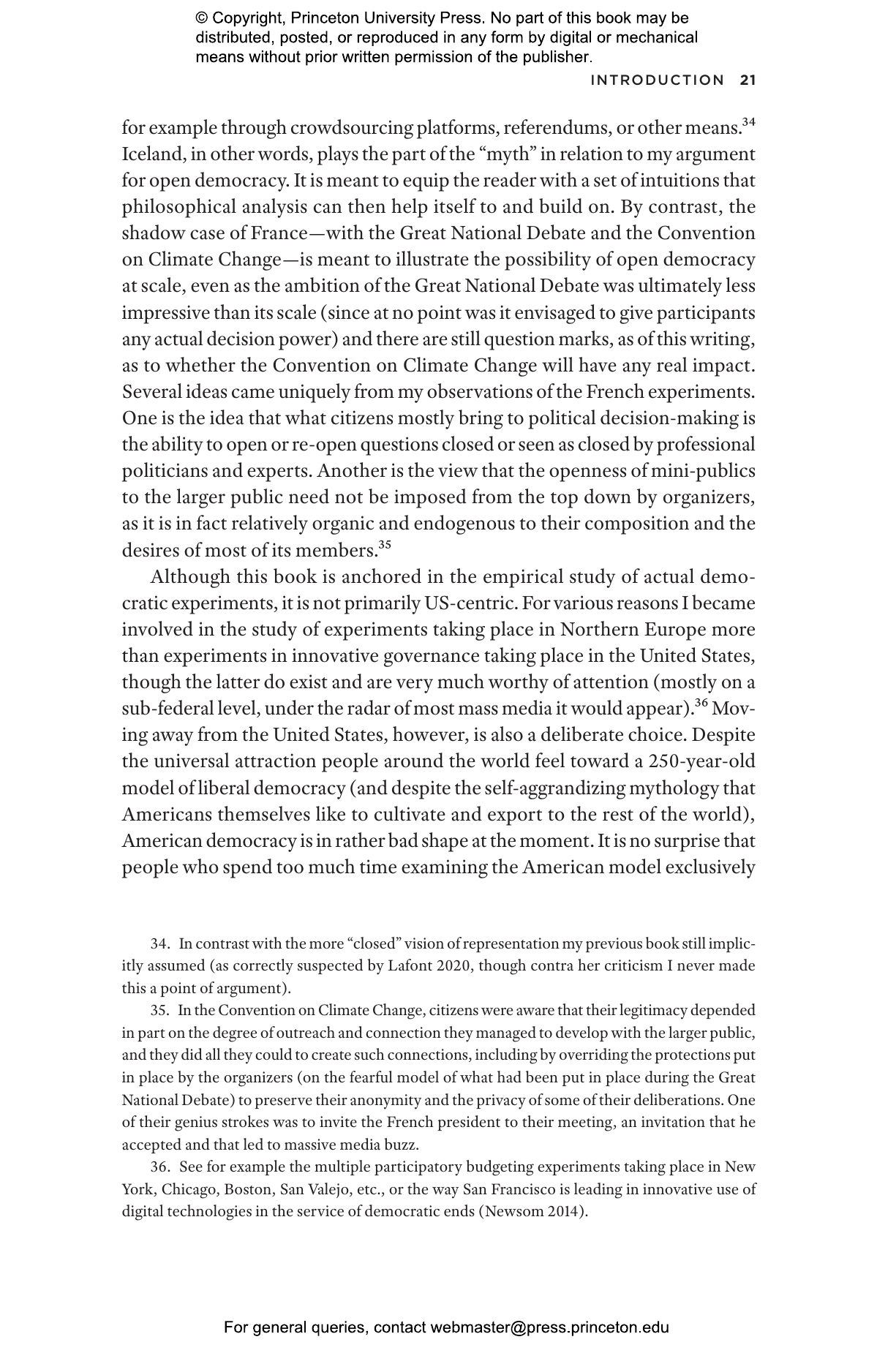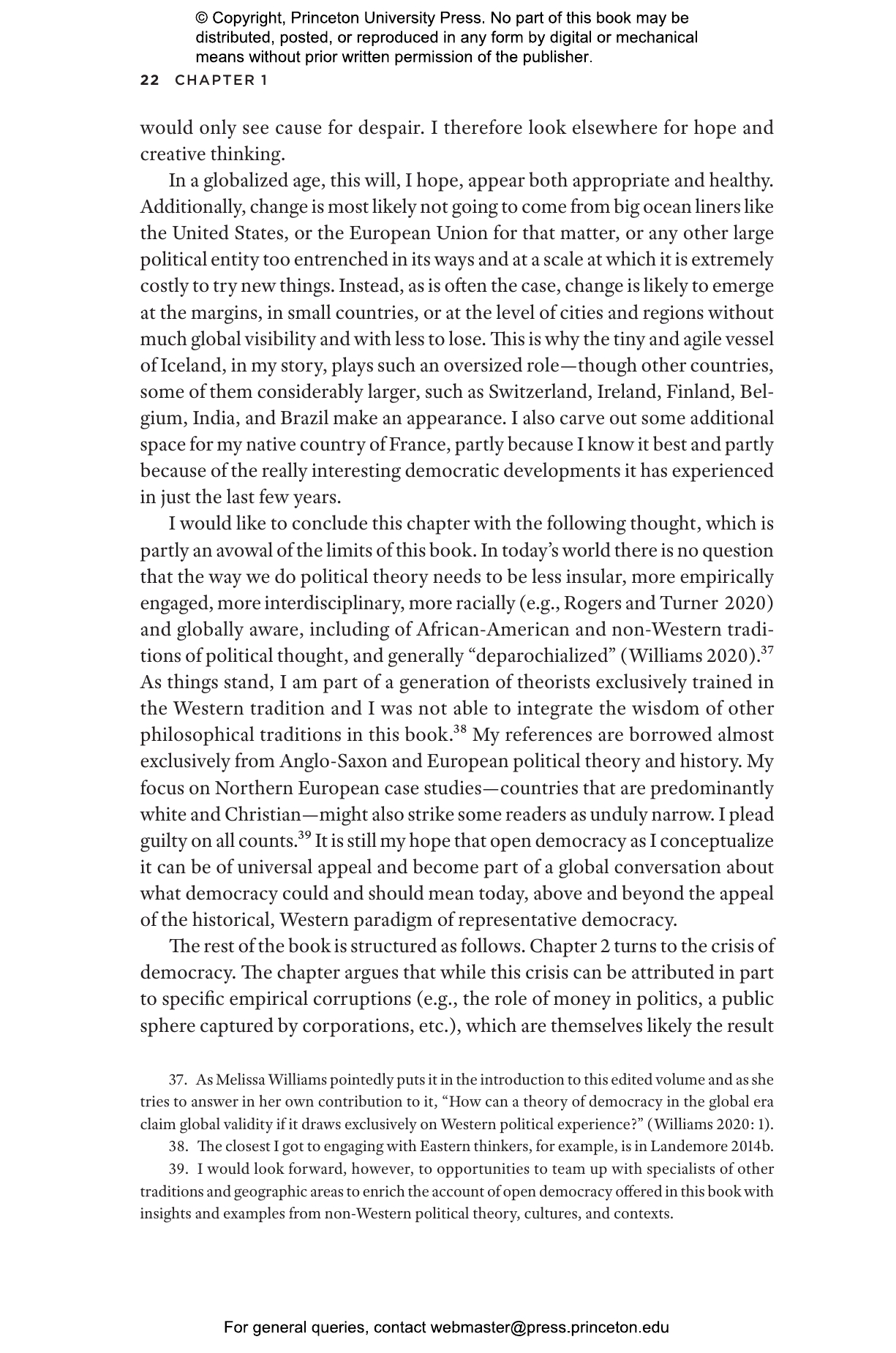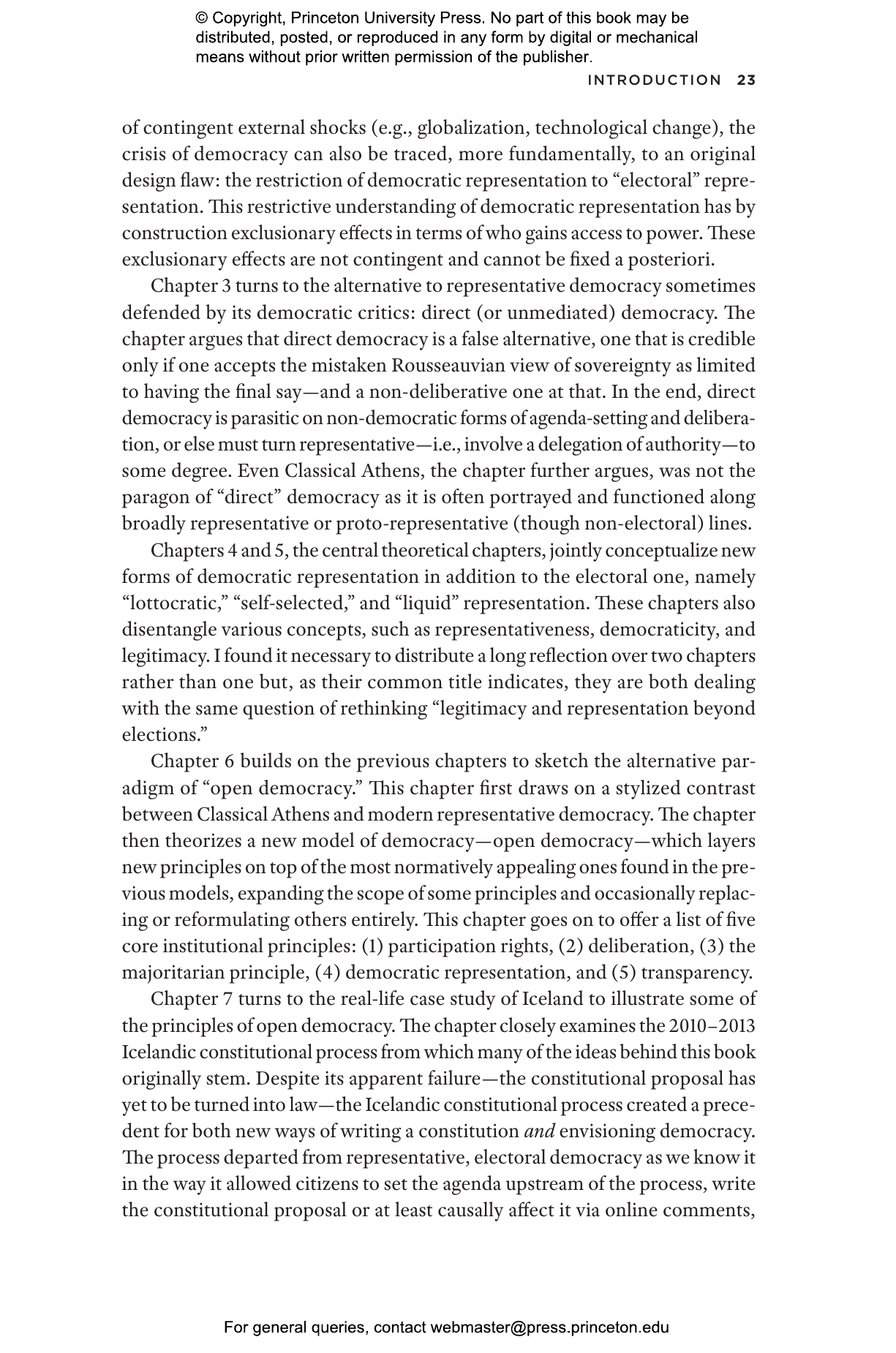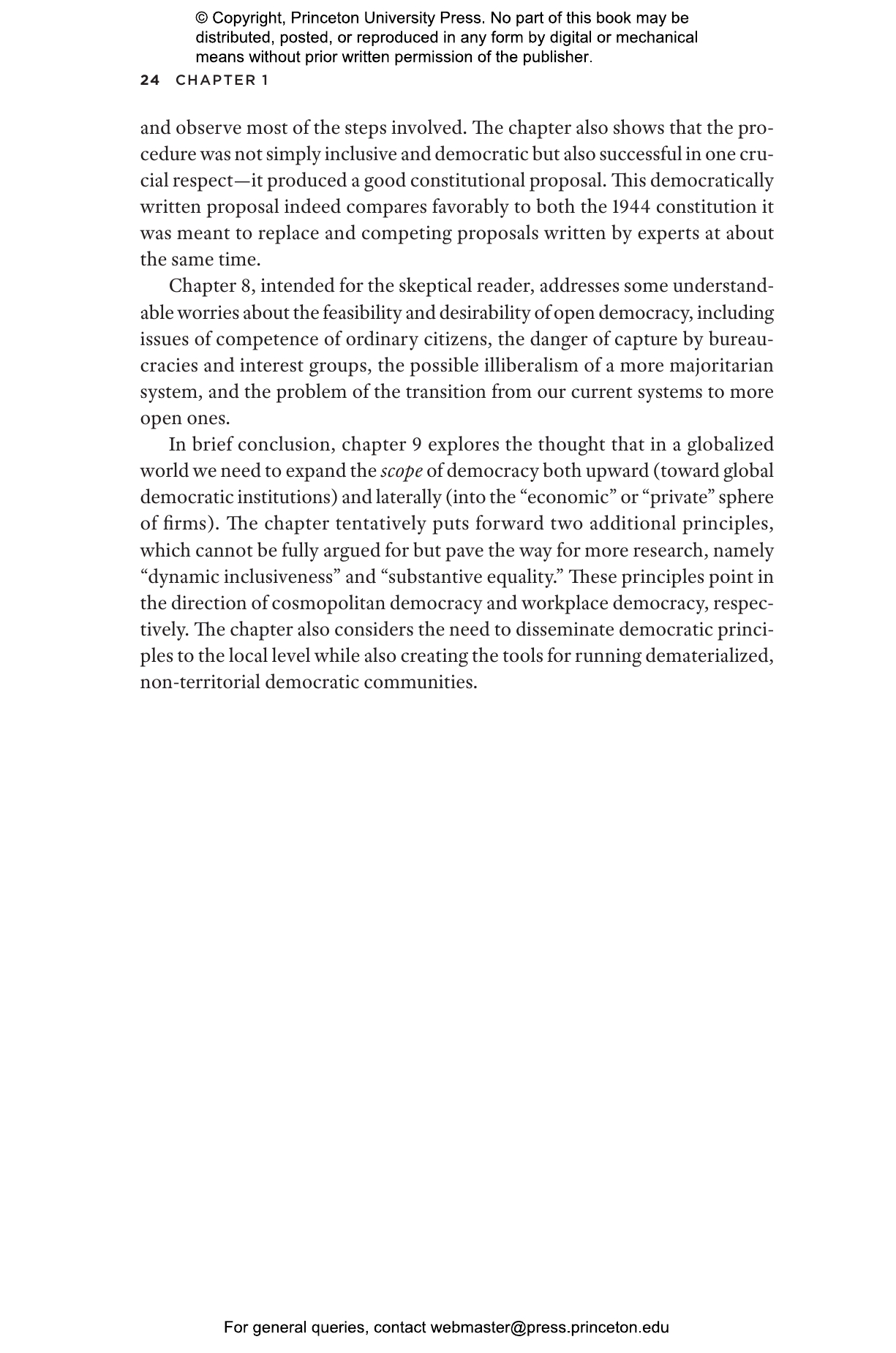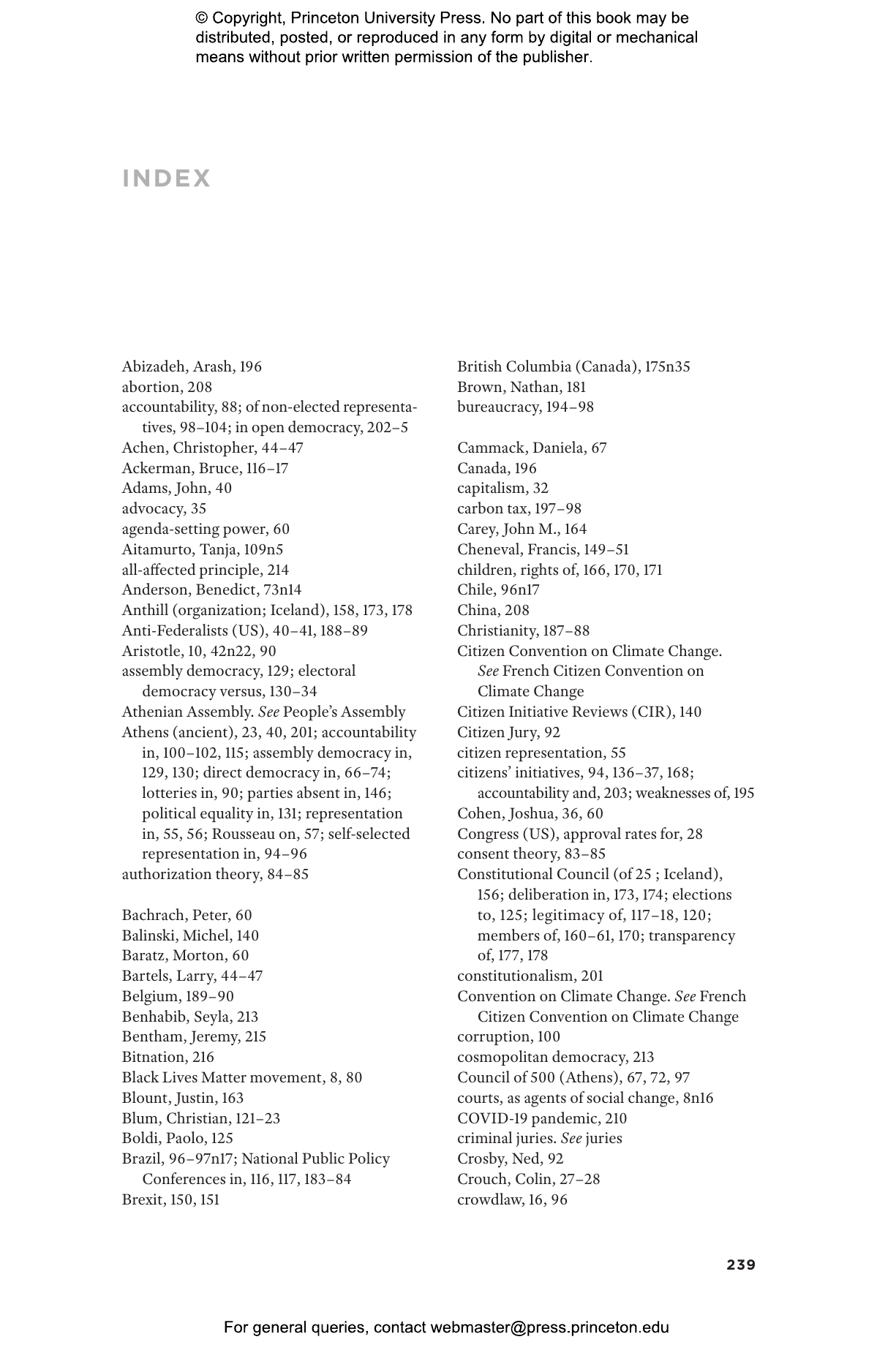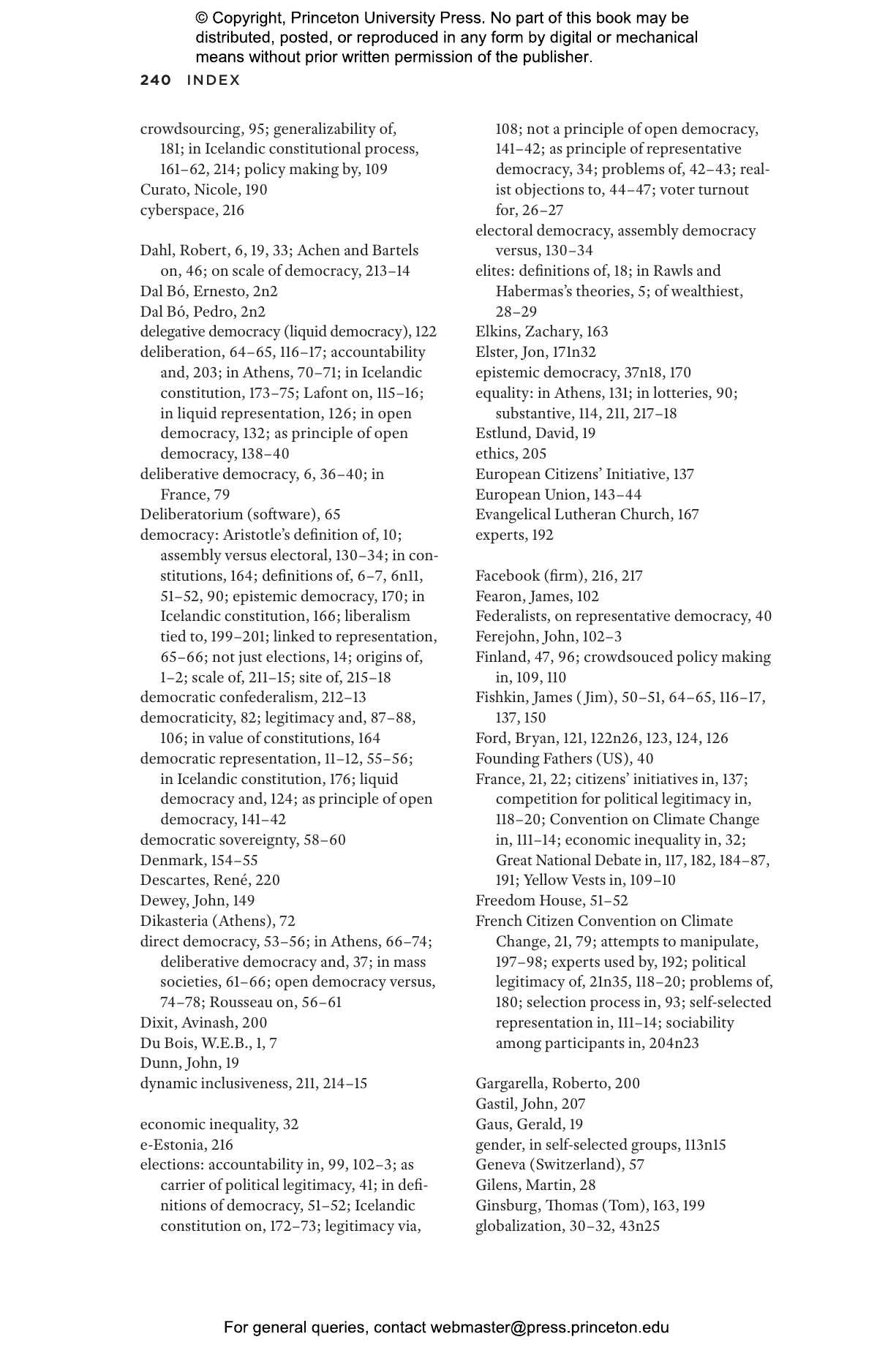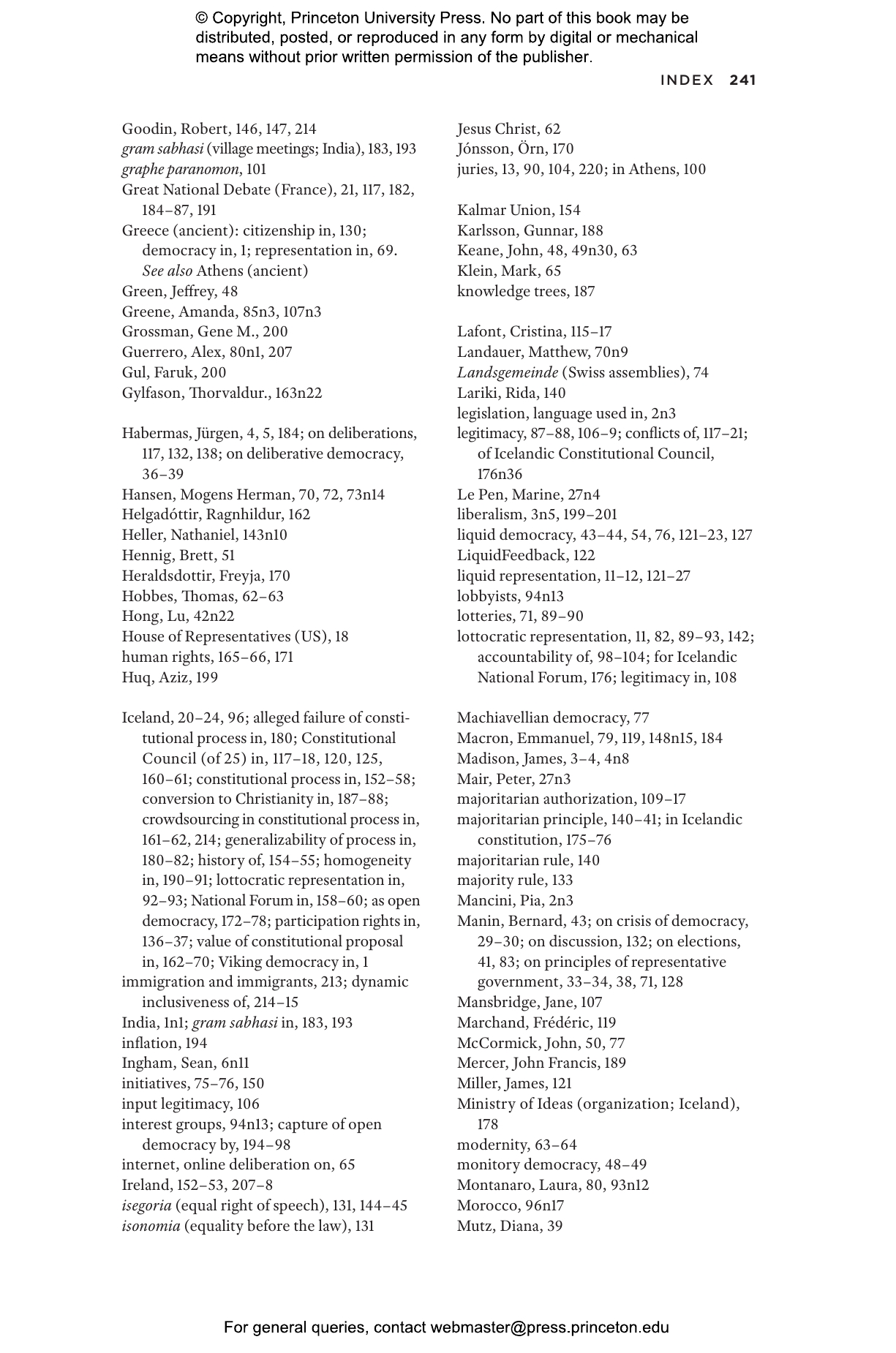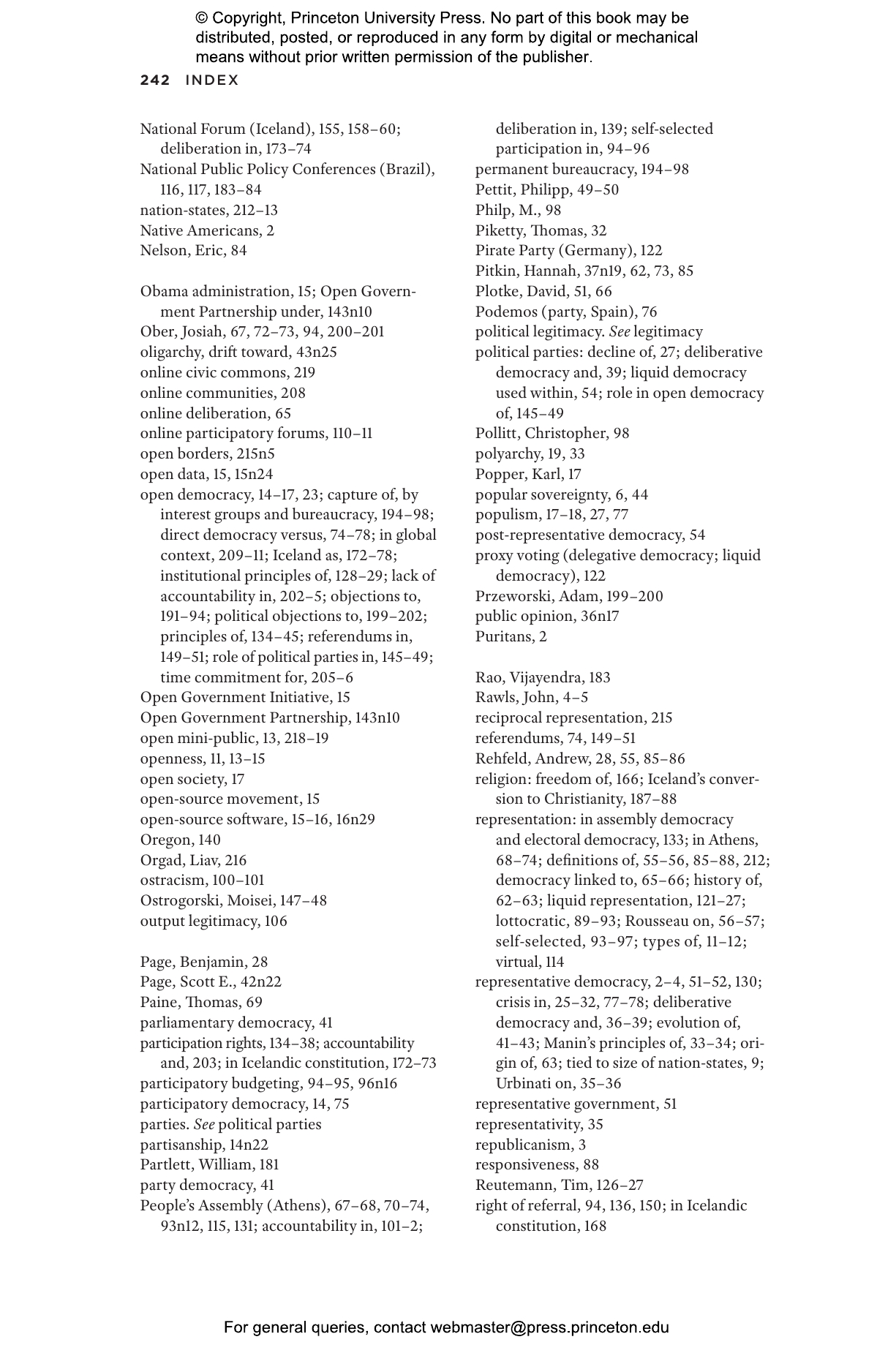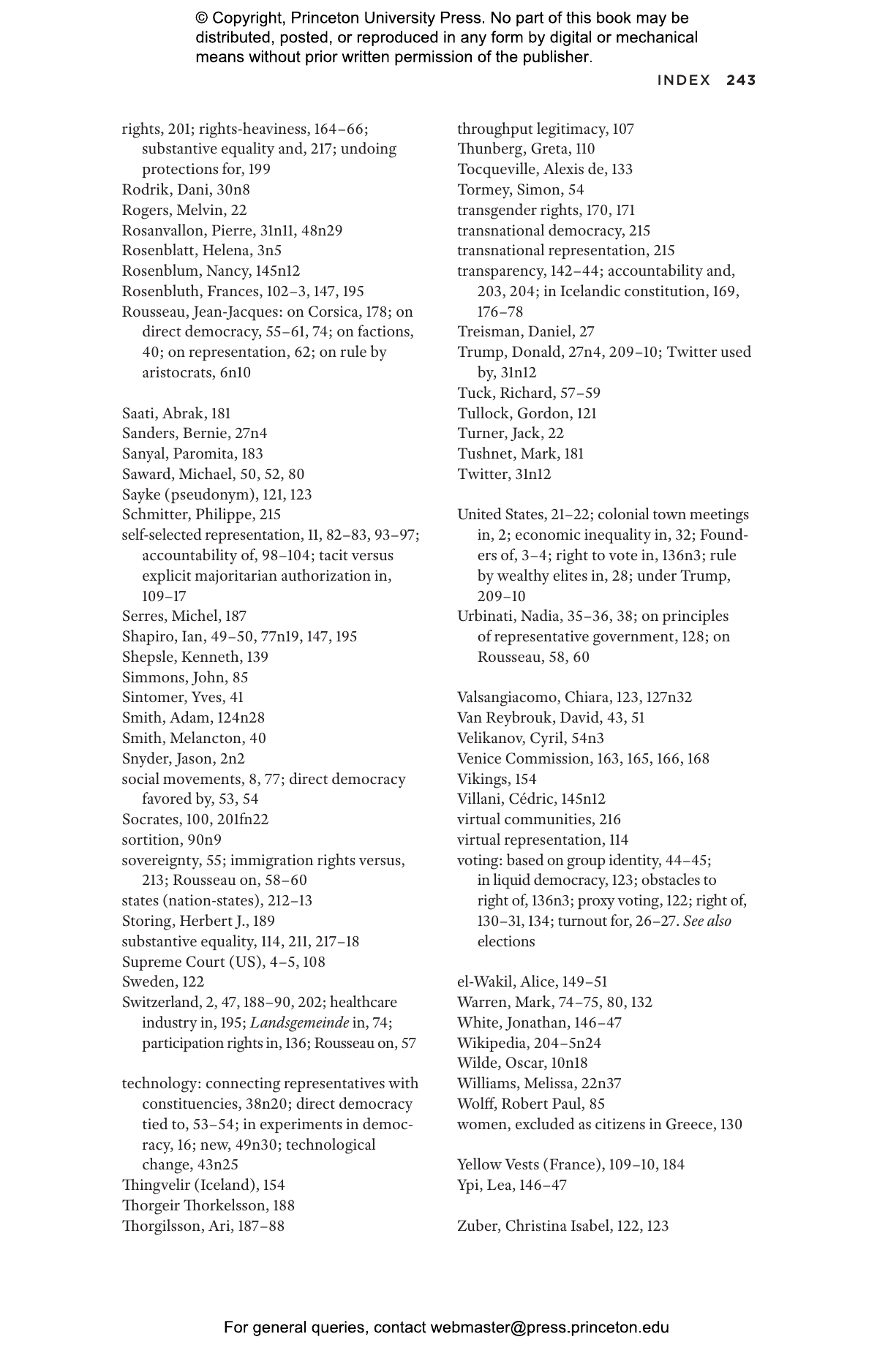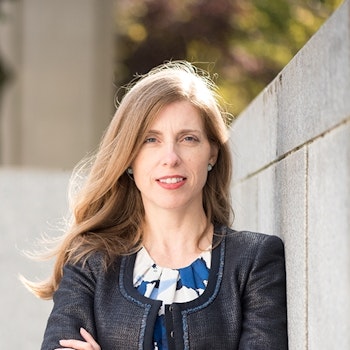To the ancient Greeks, democracy meant gathering in public and debating laws set by a randomly selected assembly of several hundred citizens. To the Icelandic Vikings, democracy meant meeting every summer in a field to discuss issues until consensus was reached. Our contemporary representative democracies are very different. Modern parliaments are gated and guarded, and it seems as if only certain people—with the right suit, accent, wealth, and connections—are welcome. Diagnosing what is wrong with representative government and aiming to recover some of the lost openness of ancient democracies, Open Democracy presents a new paradigm of democracy in which power is genuinely accessible to ordinary citizens.
Hélène Landemore favors the ideal of “representing and being represented in turn” over direct-democracy approaches. Supporting a fresh nonelectoral understanding of democratic representation, Landemore recommends centering political institutions around the “open mini-public”—a large, jury-like body of randomly selected citizens gathered to define laws and policies for the polity, in connection with the larger public. She also defends five institutional principles as the foundations of an open democracy: participatory rights, deliberation, the majoritarian principle, democratic representation, and transparency.
Open Democracy demonstrates that placing ordinary citizens, rather than elites, at the heart of democratic power is not only the true meaning of a government of, by, and for the people, but also feasible and, today more than ever, urgently needed.
Awards and Recognition
- Finalist for the North American Society for Social Philosophy Book Award
Hélène Landemore is associate professor of political science at Yale University. She is the author of Democratic Reason (Princeton) and Hume. Twitter @landemore
"Open Democracy envisions what true government by mass leadership could look like. Her model is based on the simple idea that, if government by the people is a goal, the people ought to do the governing."—Nathan Heller, New Yorker
"A great defence of both sortition and deliberation as complements to representative democracy."—Pratap Bhanu Mehta, Open Magazine
"A bold exploration of how we can move beyond a purely electoral conception of democratic representation. Using normative democratic theory and real-world examples of innovations in citizen representation, Hélène Landemore argues for a vision of democracy that is more faithful to popular rule, more likely to tap into democratic reason, and more stable and durable than electoral democracy."—Erica Yu, Erasmus Journal for Philosophy and Economics
"Ambitious. . . . A scheme that breaks with two liberal-democratic institutions that are usually taken for granted: elections and political parties."—Jan-Werner Mueller, Project Syndicate
"[Landemore] argues that we need a new, more inclusive system of governance that is less elitist and more participatory to cure what ails democracy."—The Nation
"A fascinating, wide-ranging book."—Rachael Walsh, International Journal of Constitutional Law
"Important."—Christopher Kutz, Los Angeles Review of Books
"In this provocative and masterful book, Landemore’s surprising answer to the crisis of democracy is more democracy. Since the threat to democracy is rule by untrustworthy elected leaders, Landemore proposes establishing—through random selection processes—bodies of ordinary citizens to govern and engage in policymaking, which banks on the sensibility of collective public opinion and the diversity of a nation’s citizenry. Ambitious and important, Open Democracy brings together the richness of democratic theory and relevant examples in a most engaging way."—Robert Y. Shapiro, Columbia University
"Indispensable and inspiring, Open Democracy provides a penetrating critique of the failures of electoral representation and an in-depth exploration of the democratic innovations invented or brought to fruition in the last decade to combat these failures. Anyone frustrated with the workings of democracy should read this book."—Jane Mansbridge, Harvard University
"Engaging a wide range of contemporary literature and prominent debates, Open Democracy makes an important and truly original contribution to democratic theory and practice. Landemore presents a new and radical view of the direction we should be headed in reforming, renovating, and rethinking our democratic institutions."—Simone Chambers, University of California, Irvine
"Open Democracy offers an innovative and exciting approach to politics. It adds a distinct perspective to the literature and engages in questions that have largely been taken for granted."—Ryan Muldoon, author of Social Contract Theory for a Diverse World
